Dear Steemit friends :
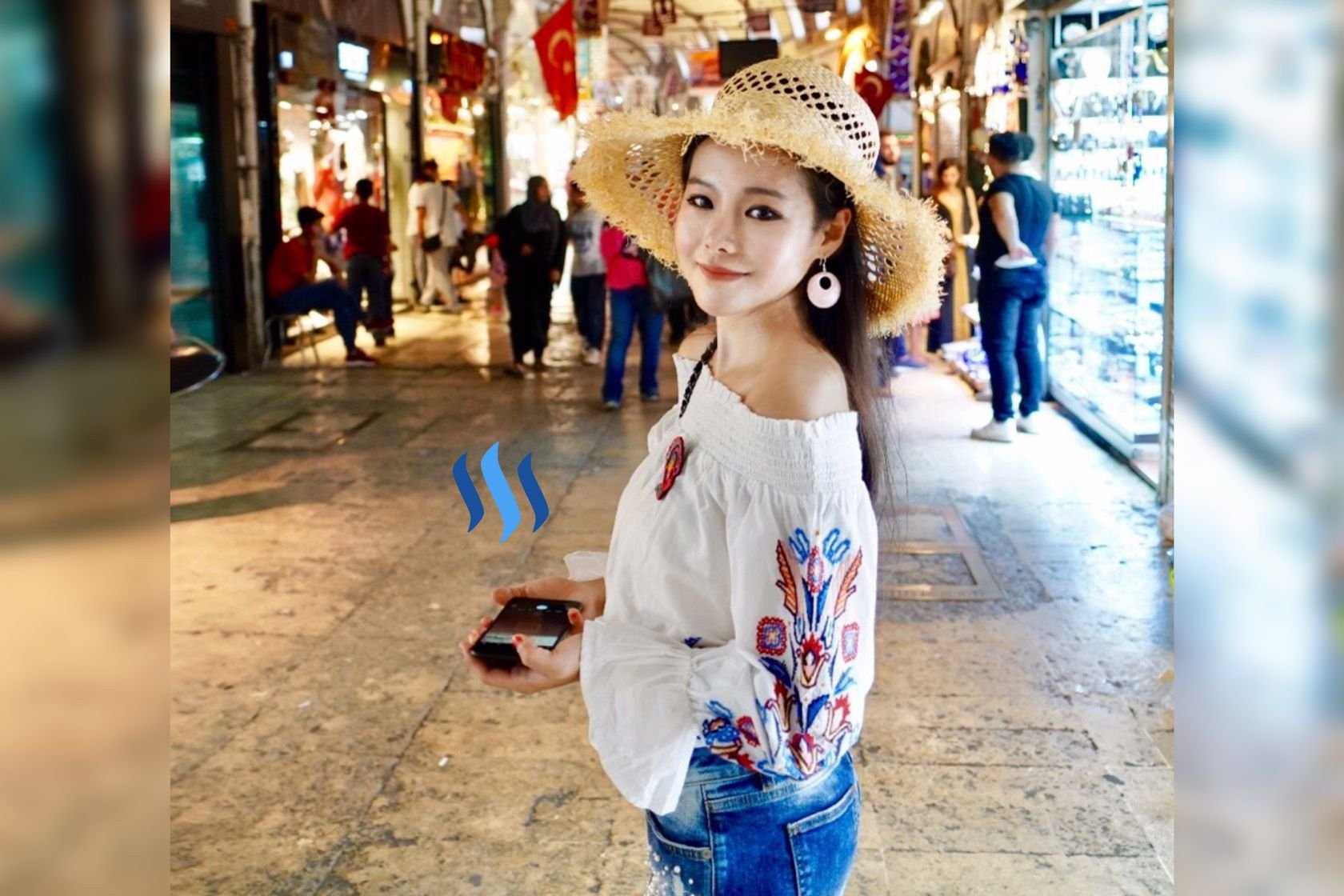
Every time I visit a city, I like to find the places which capture the heart and soul of the city. It doesn't have to be the most recognisable landmarks (although they happen to be a lot of the time). They can be places which intertwine with the local people, through tradition, or habitual way of life. Some of the most interesting places I've visited all over the world are places the locals go to on a day to day basis, because it is a part of their life, their routine.
The Grand Bazaar is one of the places that fit my criteria. Labelled as one of the first shopping malls in the world, The Grand Bazaar is home to over 5000 shops and 61 covered streets. To this day, it is one of the largest covered markets in the world covering an area of over 54,000 square meters and will attract several hundred thousand visitors each and everyday. This magnitude of foot traffic has earned the Grand Bazaar a label as the most visited tourist attraction in the world. Is the Grand Bazaar the most awesome, amazing, fascinating, bargain filled market in the world such that it attracts the visitation of nearly all tourists who pass by Turkey?
Well, let's look around and find out!
The first thing you'll realise is that the Grand Bazaar has many entrances, 18 to be exact. You can enter from nearly all sides depending on where you're setting out from. Some of the entrances have archway style gates whilst others are just door like cut outs.
Once inside, I was very quickly overwhelmed by large it really is. The covered "streets" seem to extend with no end, with shops filling up both sides of every street.
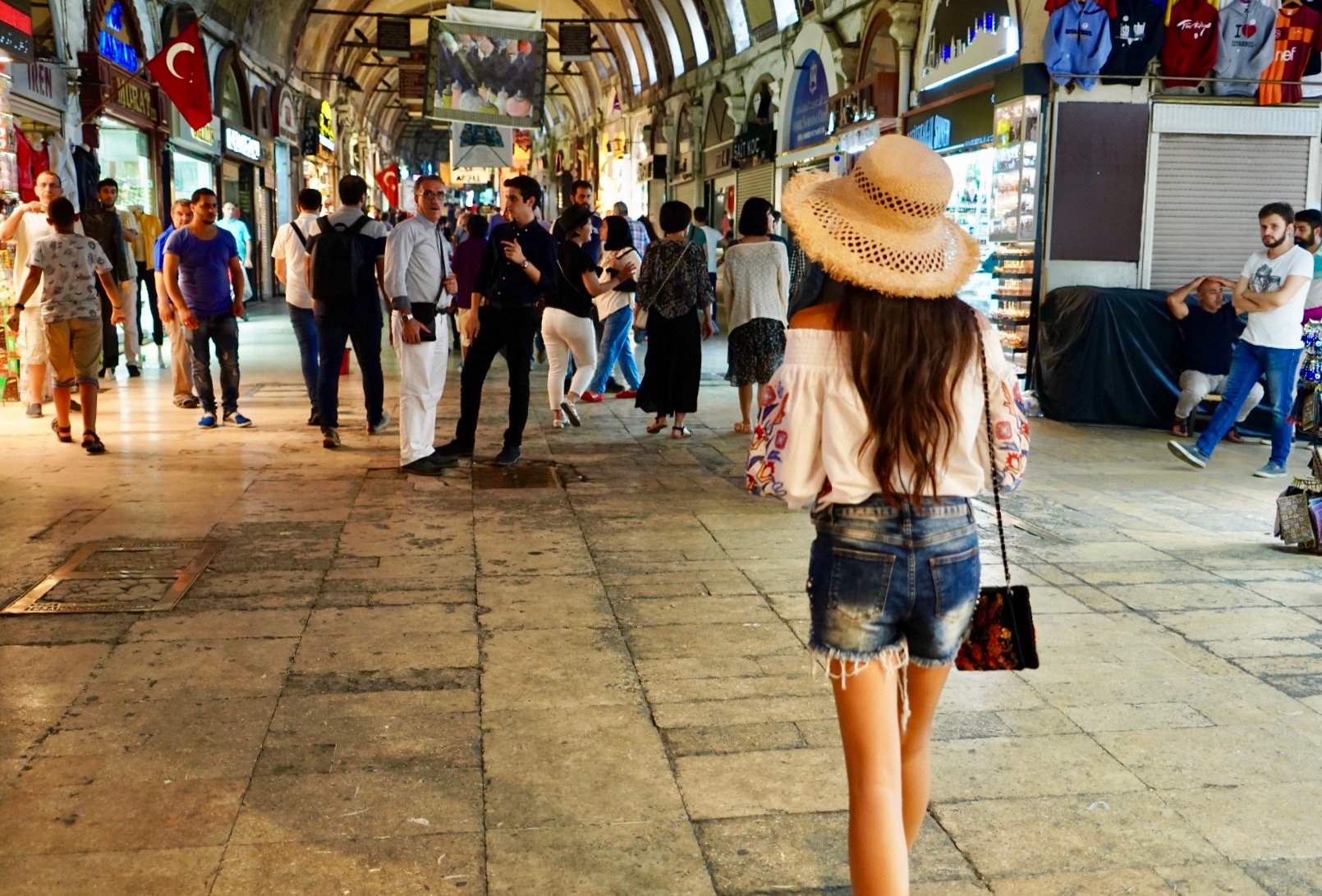
The items in the shops vary quite a bit. At the beginning, I thought it was a jewellery market because the street I walked through first was famous for it's jewellery (Kalpakcilarbasi Street).
Walking further in towards the centre of the market, I realised they sell quite a lot more than that. In-fact, there are lots of locally made Turkish goods to browse through.
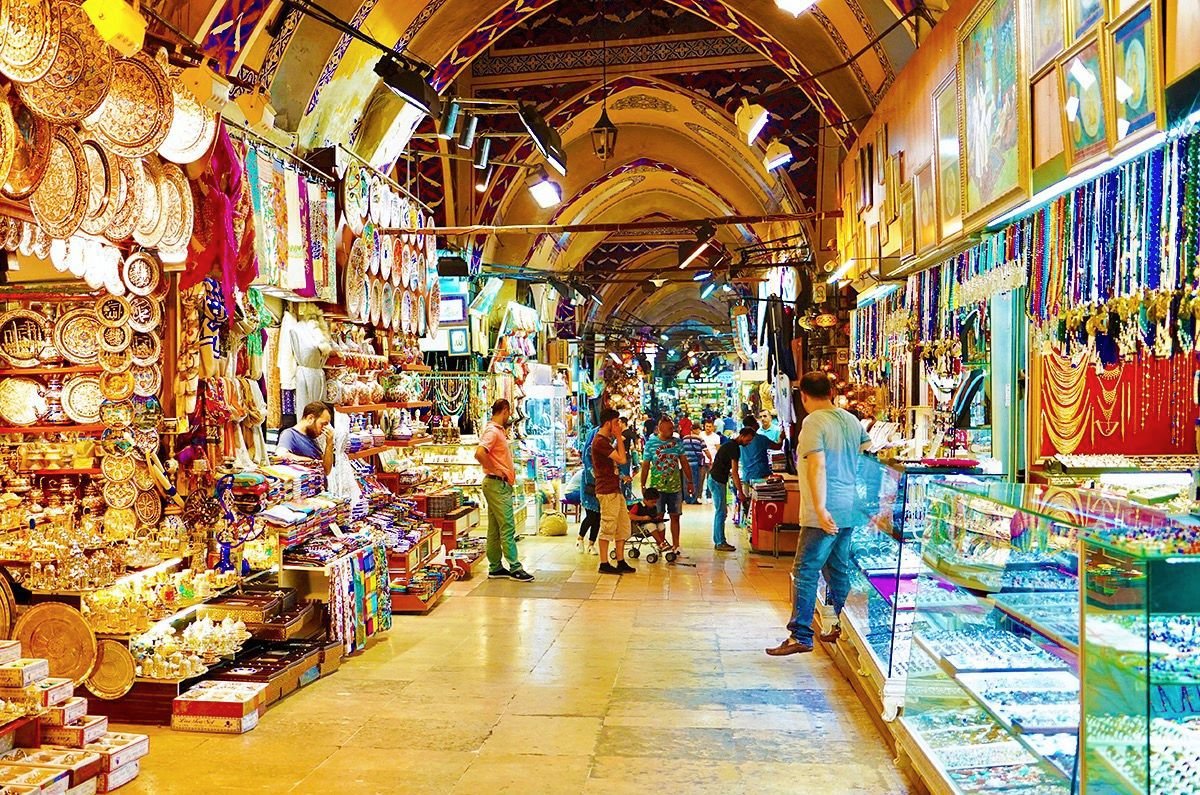
As I mentioned earlier, the entire market is covered. Walking around inside feels like navigating around a very large maze. It was however very pleasant looking up, and seeing the Turkish style designs on the ceiling. It's not meant to be a luxury brand market, so the wear and tear is more than forgivable.
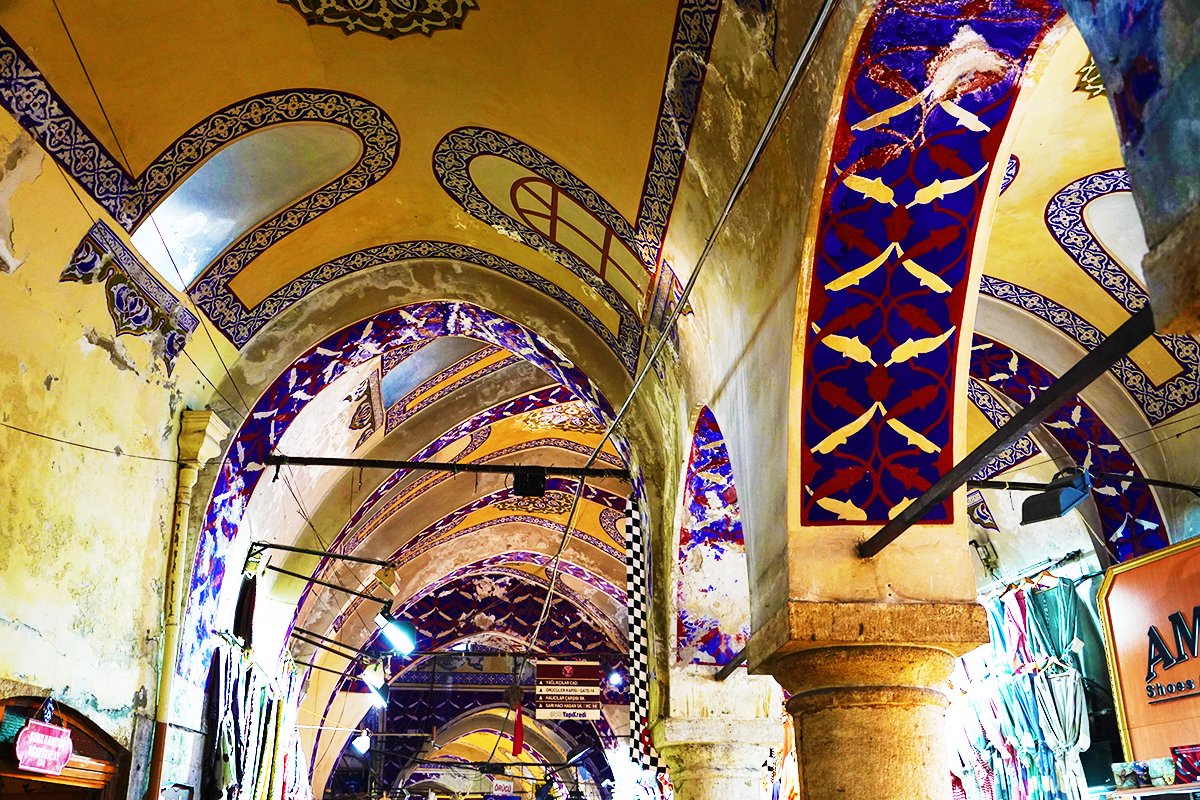
One thing you'll quickly realise, is that the Grand Bazaar has become some what a tourist trap these days. Most of the visitors are tourists and so most of the products on sale are also geared towards tourists. Not only are they expensive, many of the stalls sell irrelevant goods that have nothing to do with Istanbul or Turkey.
Up until the middle of the 19th Century, the Grand Bazaar was unrivalled for the quality of it's goods. By the late 19th century, commercial successes of western products forced many of the minority shop keepers out of the Bazaar to open shops more frequented by the Europeans.
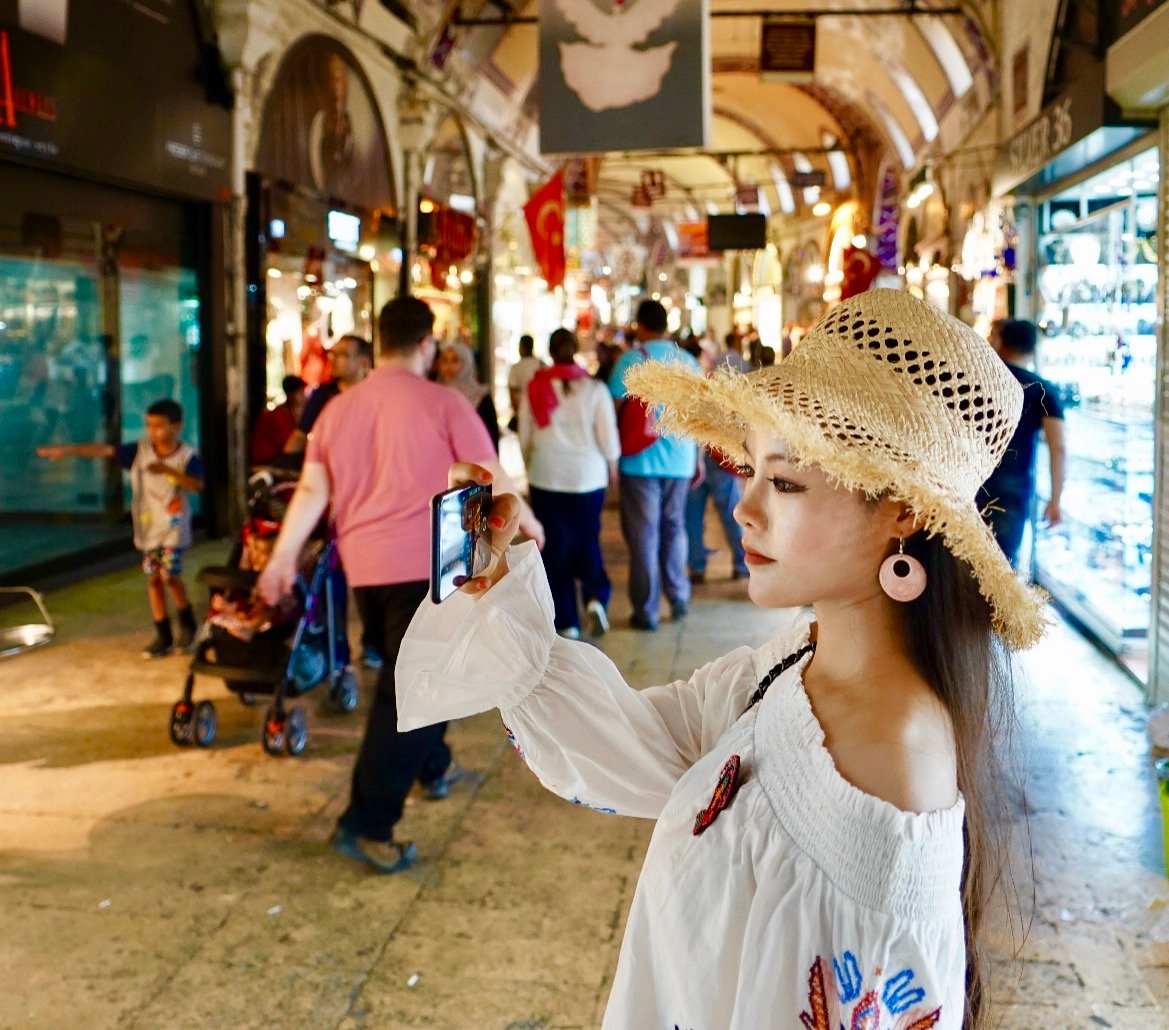
Here, you can see one of the many shops selling Turkish ceramics, Turkish Teapots and glasses. Interestingly, the shop to it's side is selling counterfeit goods. It's strange that the authorities seem not to care.
I noticed this stall selling golden oil lamps and instantly thought of Genie lamps!
So many different kinds of Tea sets to choose from. Some of them are made with glass, others made with porcelain. All of them together look like loot from treasure chest don't you think?
These "chandeliers" are quite popular here. They can come in a variety of shapes, sizes and colour. Probably the more popular ones would be the mosaic ones.
Although there is a Spice Bazaar specialising in Turkish spices, there are also stalls selling spices here too. They will happily let you you taste, or try them but you'll find it hard to leave. It's a very mercantile environment!
These are the mosaic chandelier globes I mentioned before. Lovely patterns, and vibrant colours make them stand out amongst the opaque coloured ones.
How could I forget the Nargile Pipes also known as Shisha.
It's not just copper ware, and ceramics, you'll also find some stalls selling textiles.
This is one selling table runners. They are hand made with lots of intricate patterns and embroidery.
One of the many carpet and rugs stalls. This is probably the most popular type of good I've seen inside the Bazaar and indeed in stalls all over Istanbul and many other parts of Turkey.
For the sugar fiends, there is a large stall of all the Turkish delights you could imagine.
You could spend an entire day or more at the Grand Bazaar, exploring deeper into the maze like market but you'll quickly realise that most of the products are the same from stall to stall. There isn't too much variety at the end of the day and there comes a point where pushing and shoving to move around, whilst fending off eager hustling shop keepers becomes tiring. A few hours is more than enough to satisfy your fascination and curiosity of the place, not to mention there are absolutely zero toilet facilities inside.
Taksim Square
Taksim square is another place with very high foot traffic. It's name comes from the fact that it used to be the place where water from the north of Istanbul is collected and then routed to other parts of the city. Thus, the definition of the word "Taksim" - "distribution", makes natural sense.
At the centre of the square is The Monument of the Republic. An important monument which was erected to commemorate the formation of the Turkish republic in 1923.
The statues of the people standing inside the monument are the founders of the republic. One of the most important figures is Mustafa Kemal Atatürk, who is seen on two sides of the monument at different periods of his life. He was also the person who commissioned work on the monument.
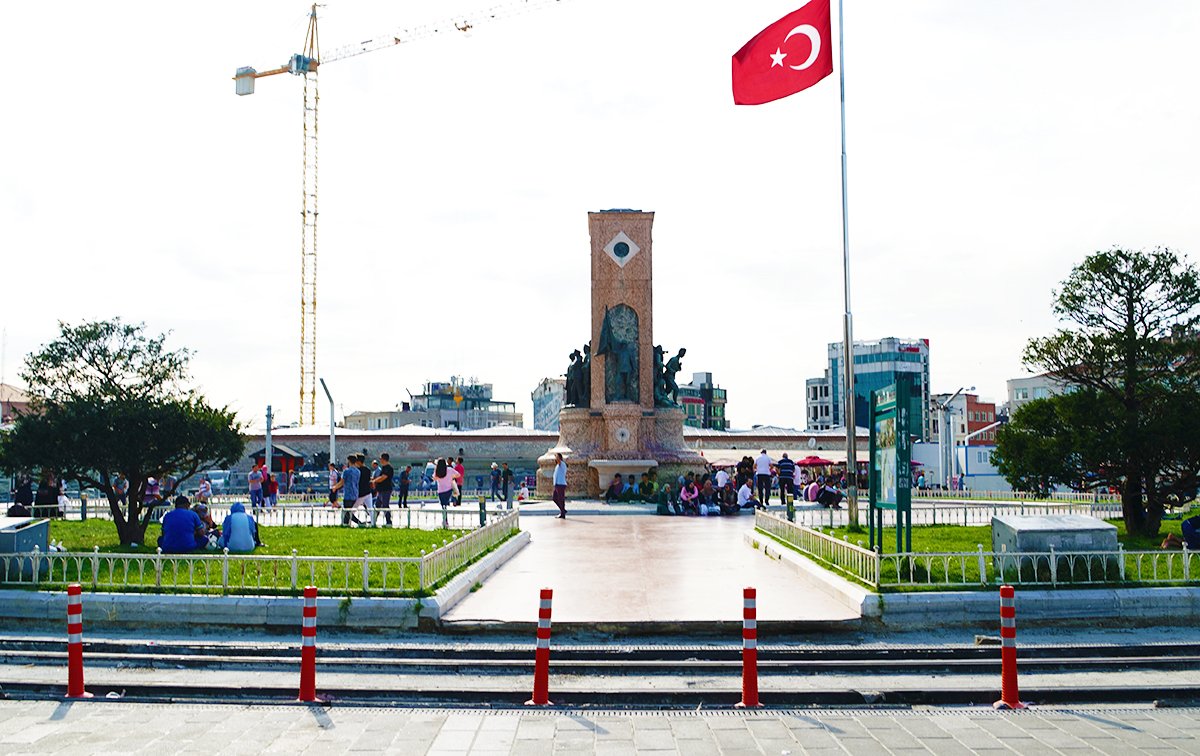
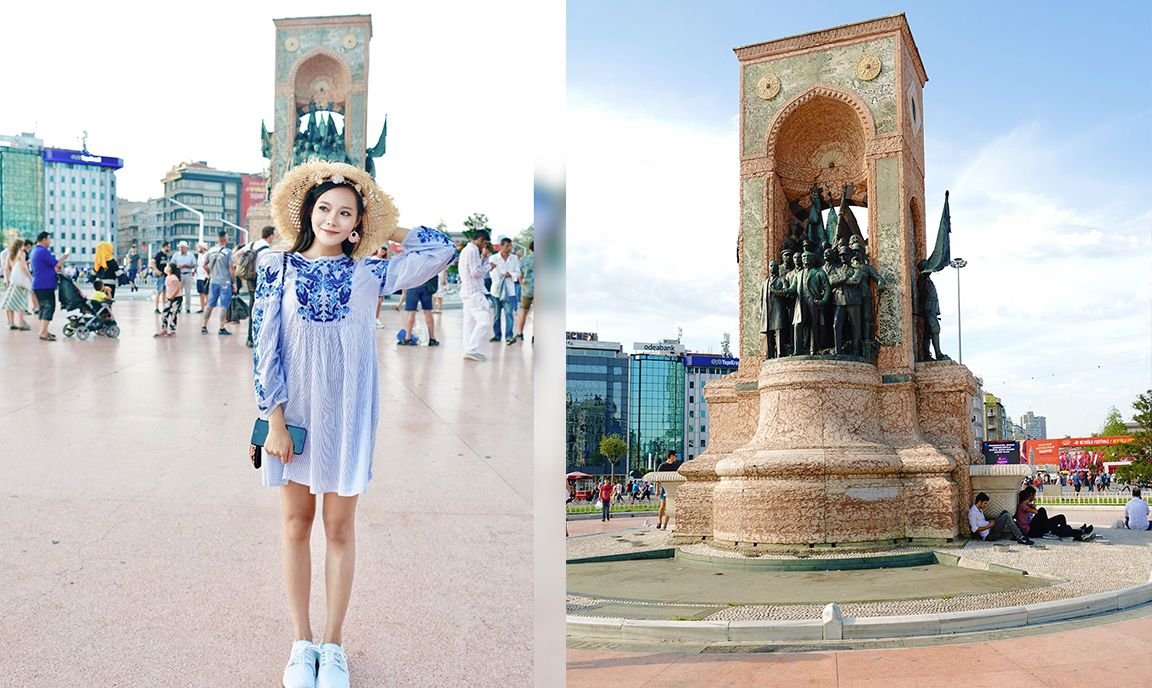
İstiklal Avenue
Located in the Beyoğlu district, İstiklal Avenue leads to Taksim square, so walking to this street from the square is very easy. One of the most visited streets in all of Istanbul. It reportedly has up to 3 million visitors on the weekends along this 1.4km long street.
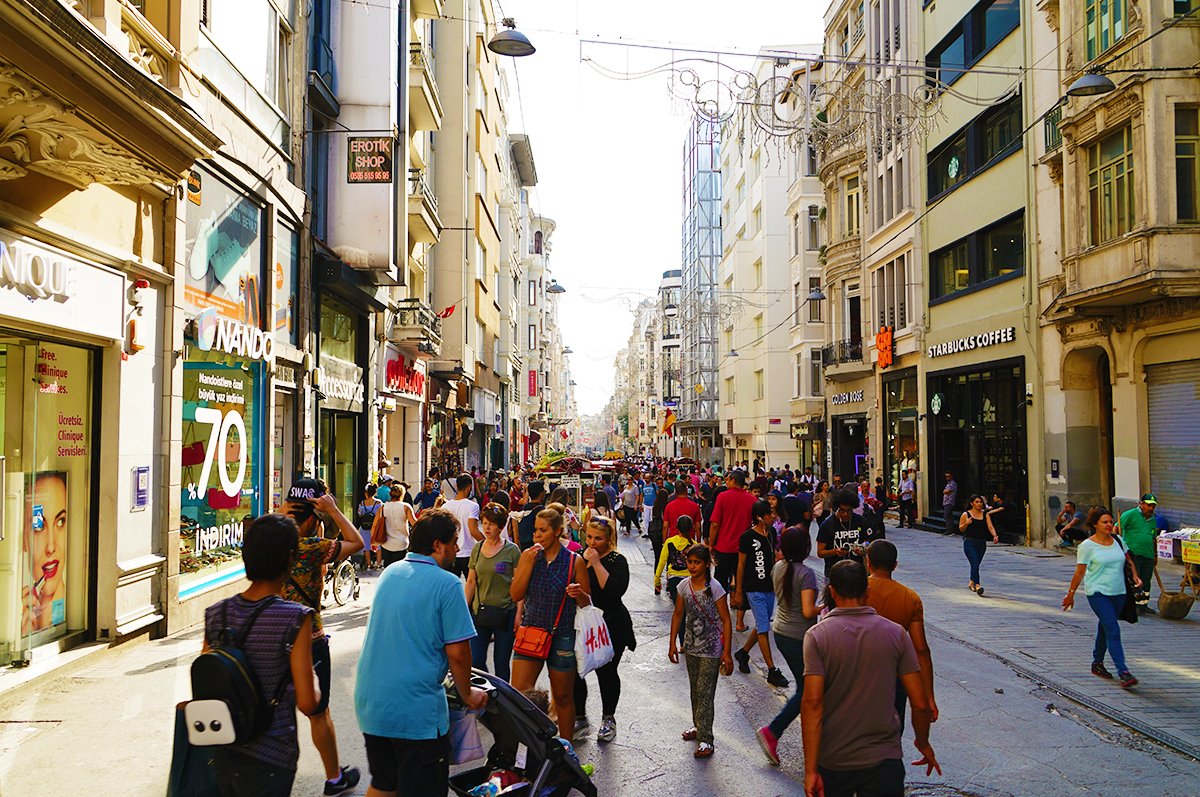
Just at the entrance there is this long row of Kebab shops with an equally long and neat row of Turkish flags.
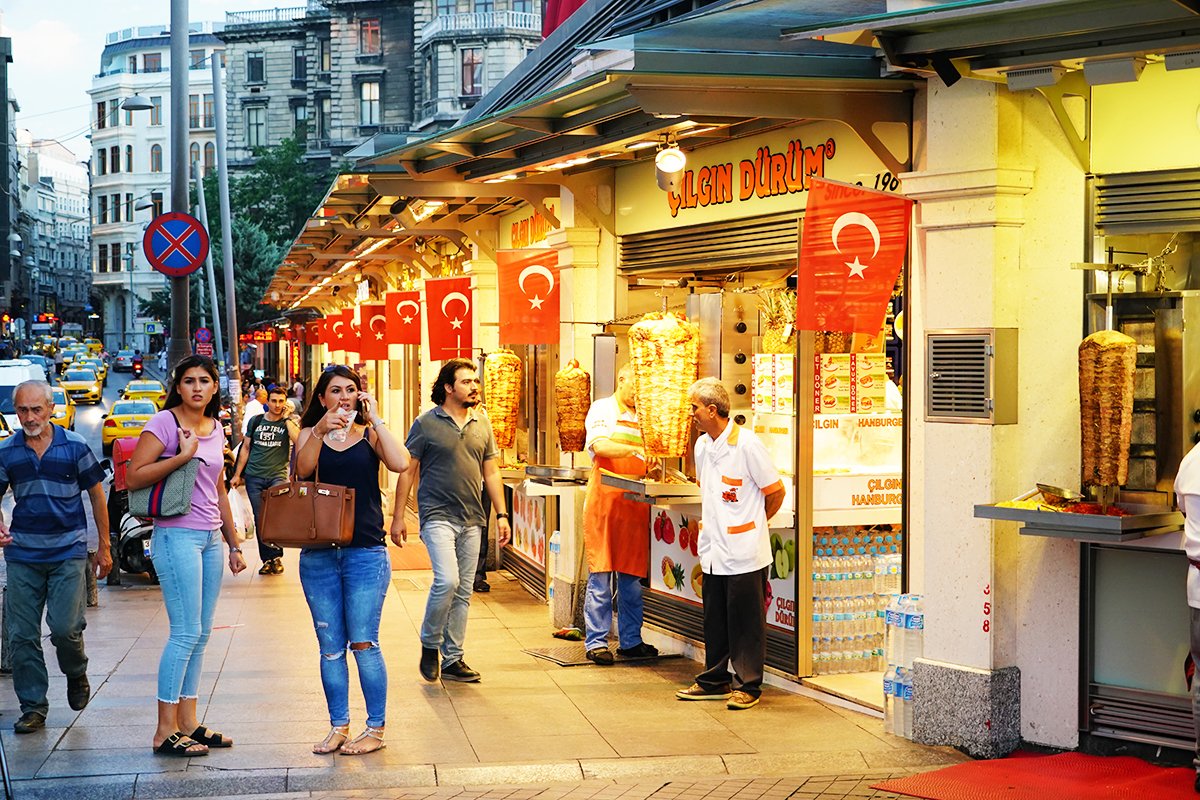
People visit İstiklal Avenue for a variety of reasons. You'll find clothes stores, cafes, clubs, restaurants, cinemas, theatres and much more.
These roasted nut stalls are spread out along the pedestrian area. They remind me a lot of the kind of stalls you'll see in night-markets in Taiwan.
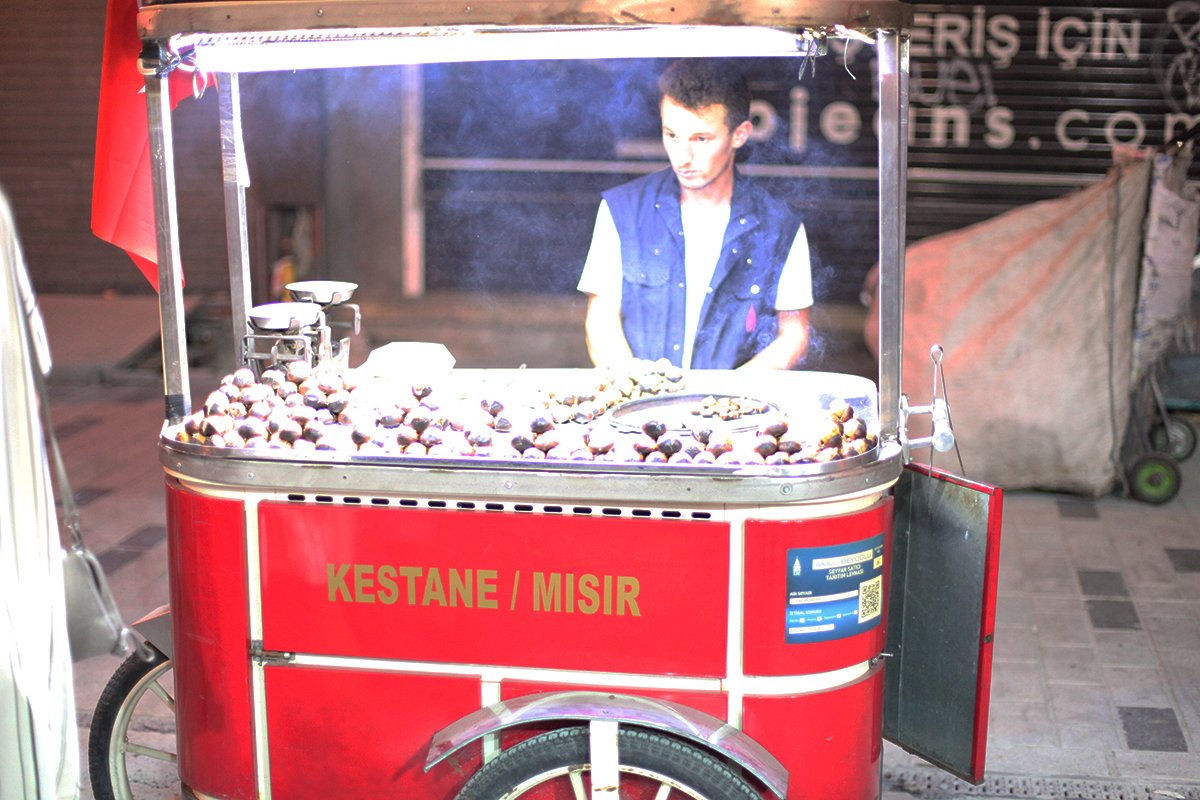
At night time the pretty hanging lights above the street are turned on. Suddenly it feels like it's Christmas. It feels like more people come out at night time than during the day. It could be because of the cooler temperatures.
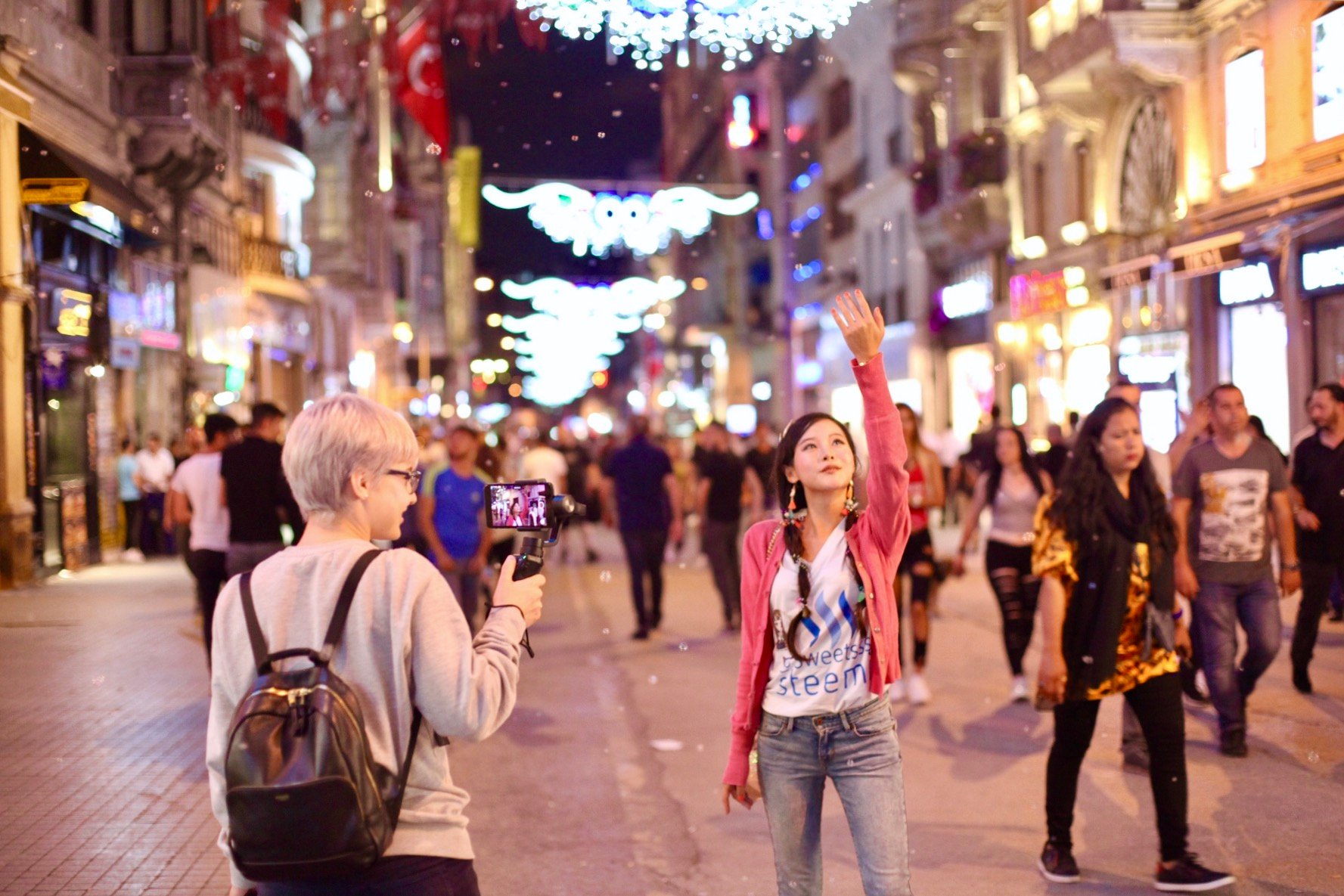
This cafe had a man pouring honey on their Baklava. From the outside, we could see the honey trickling down before it is scooped up and poured on top again. It was attractive that I immediately went inside to see what else was on offer.
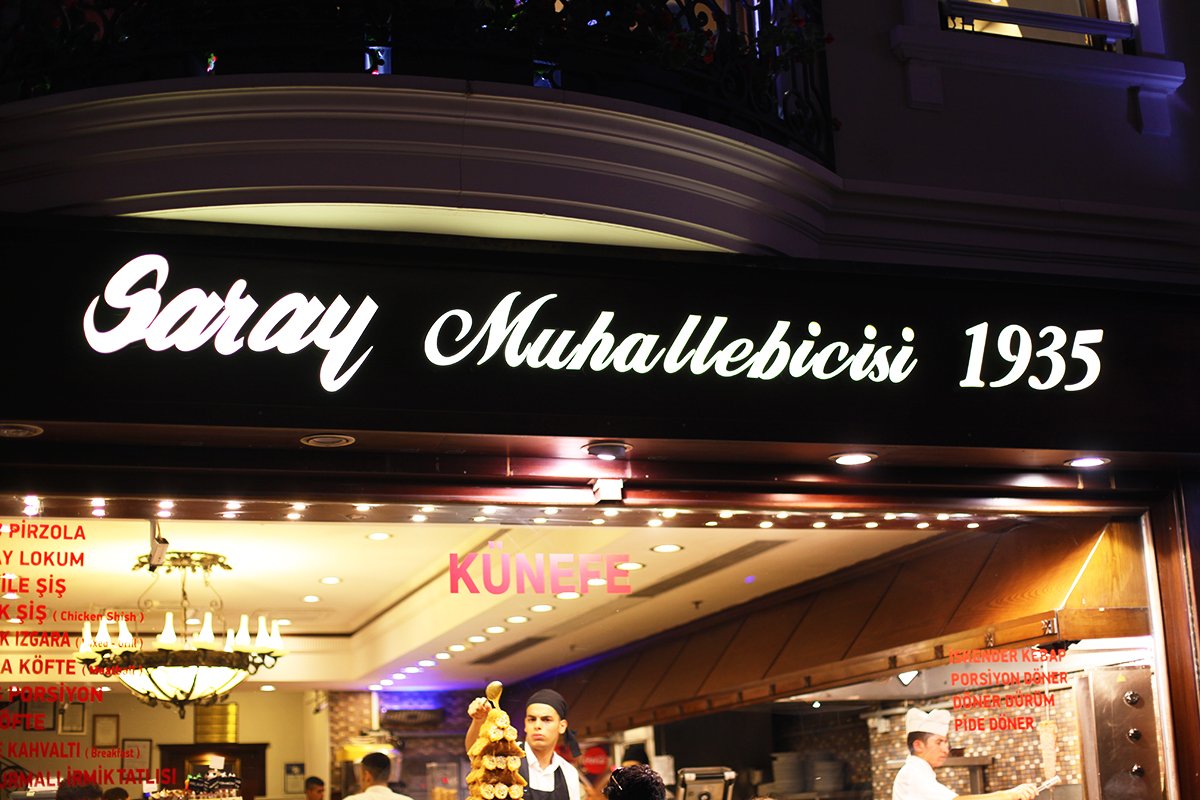
I wasn't disappointed, after a long day of walking around, I was ready to get some sugar replenishment.
Here you can see all the different cakes and desserts sold here. A common theme across all of them is the green Pistachio. Pistachio's are big Turkish produce and is frequently used in a lot of their cakes and desserts.
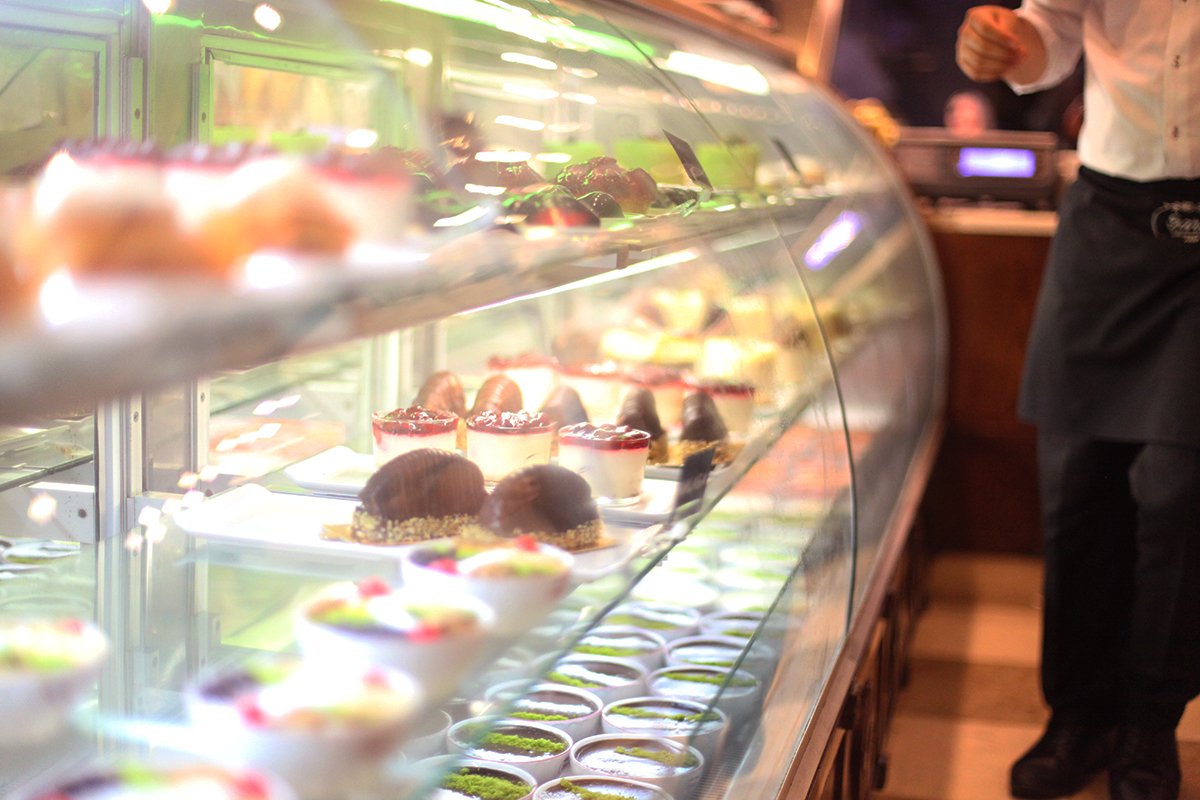
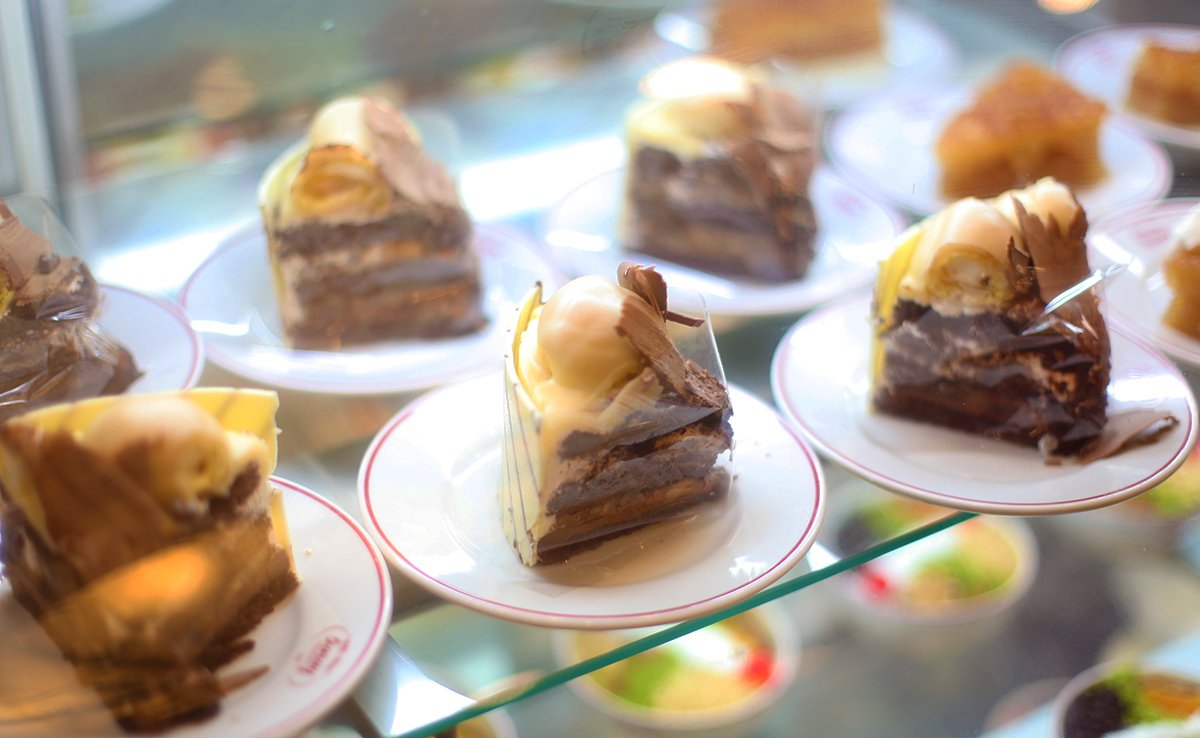
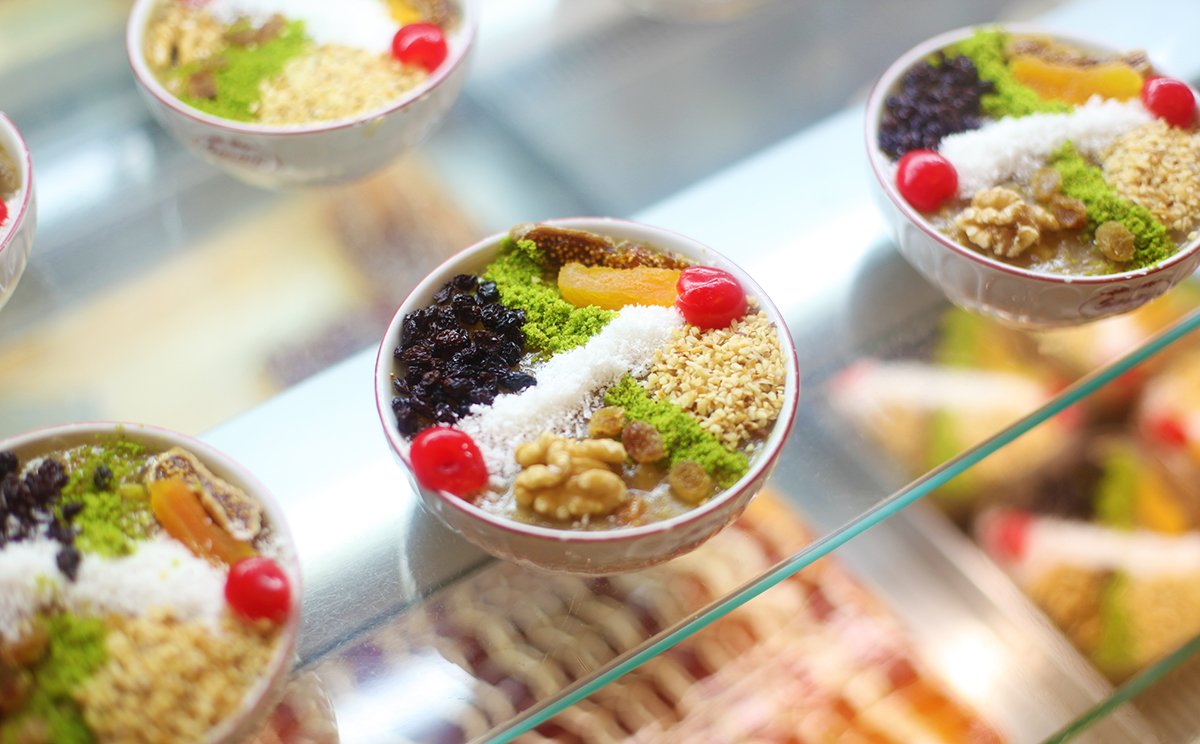
Sakızlı muhallebi
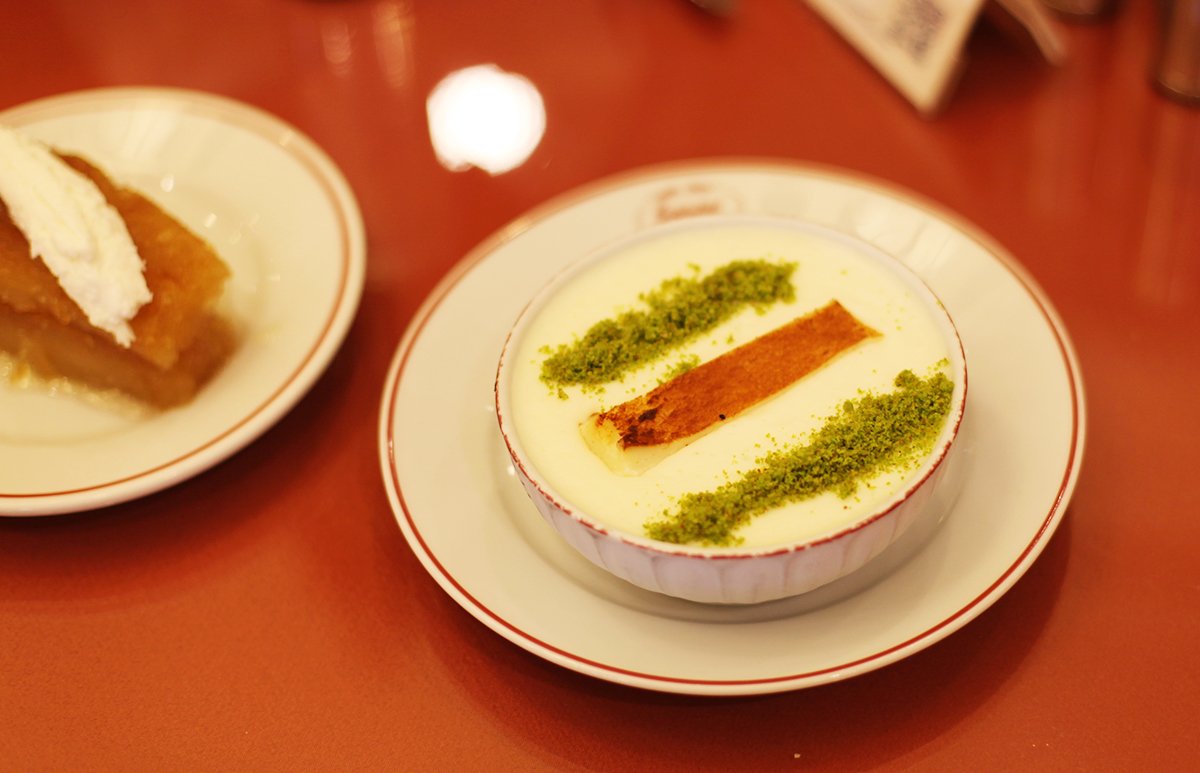
Ekmek kadayıfı
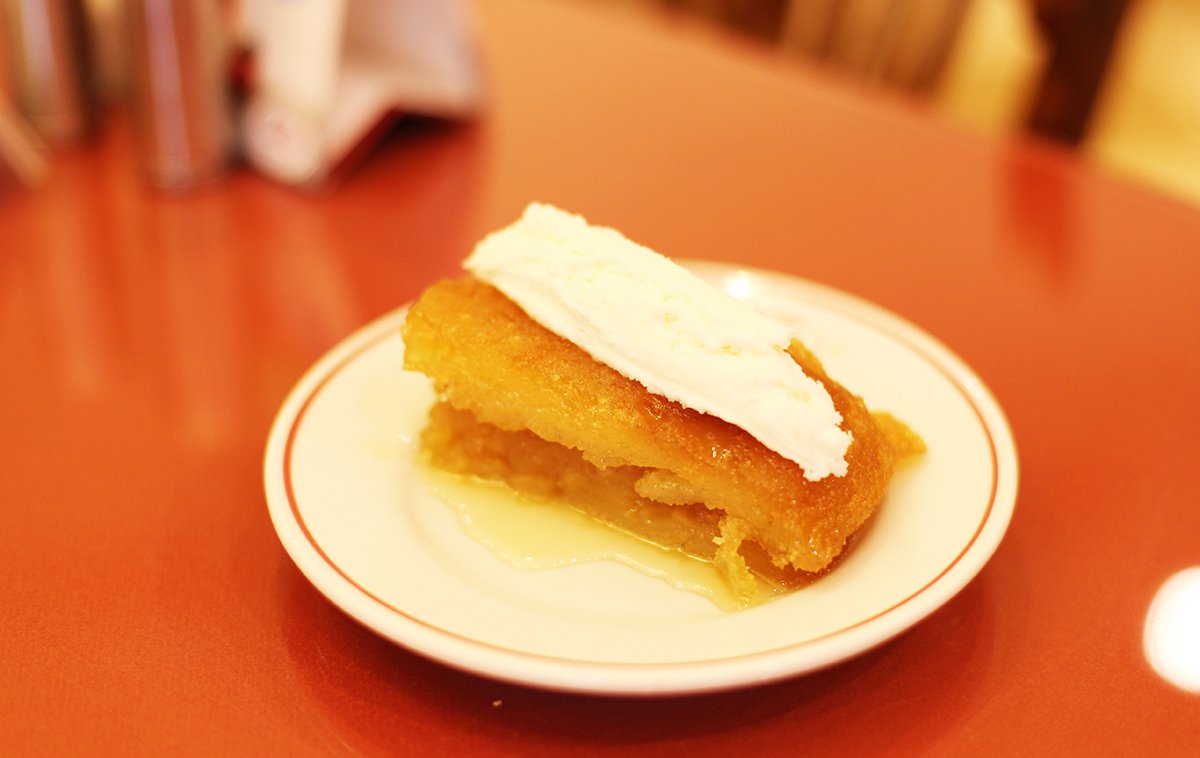
After the dessert, we decided to walk all the way back to our hotel at Sultanahmet. Walking through the streets of Istanbul suddenly made me feel less touristy, no doubt many of the things the locals take for granted, I find dazzling and very interesting.
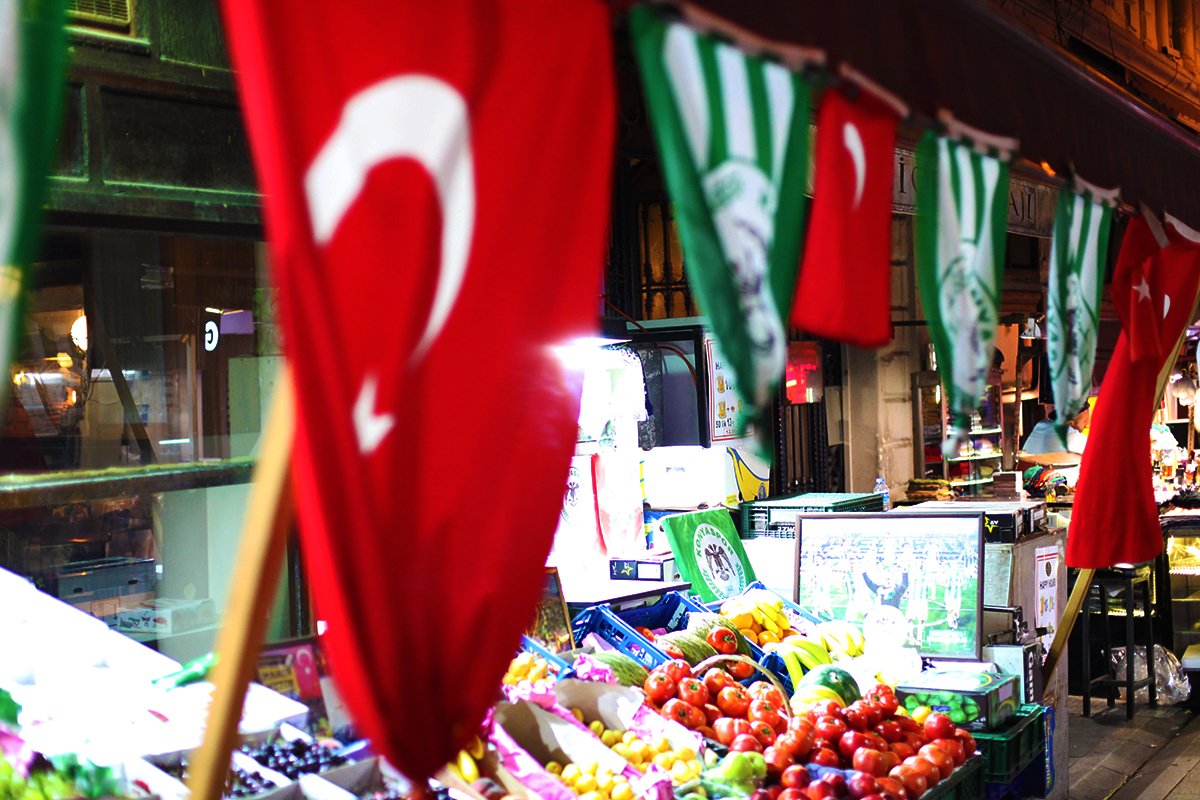
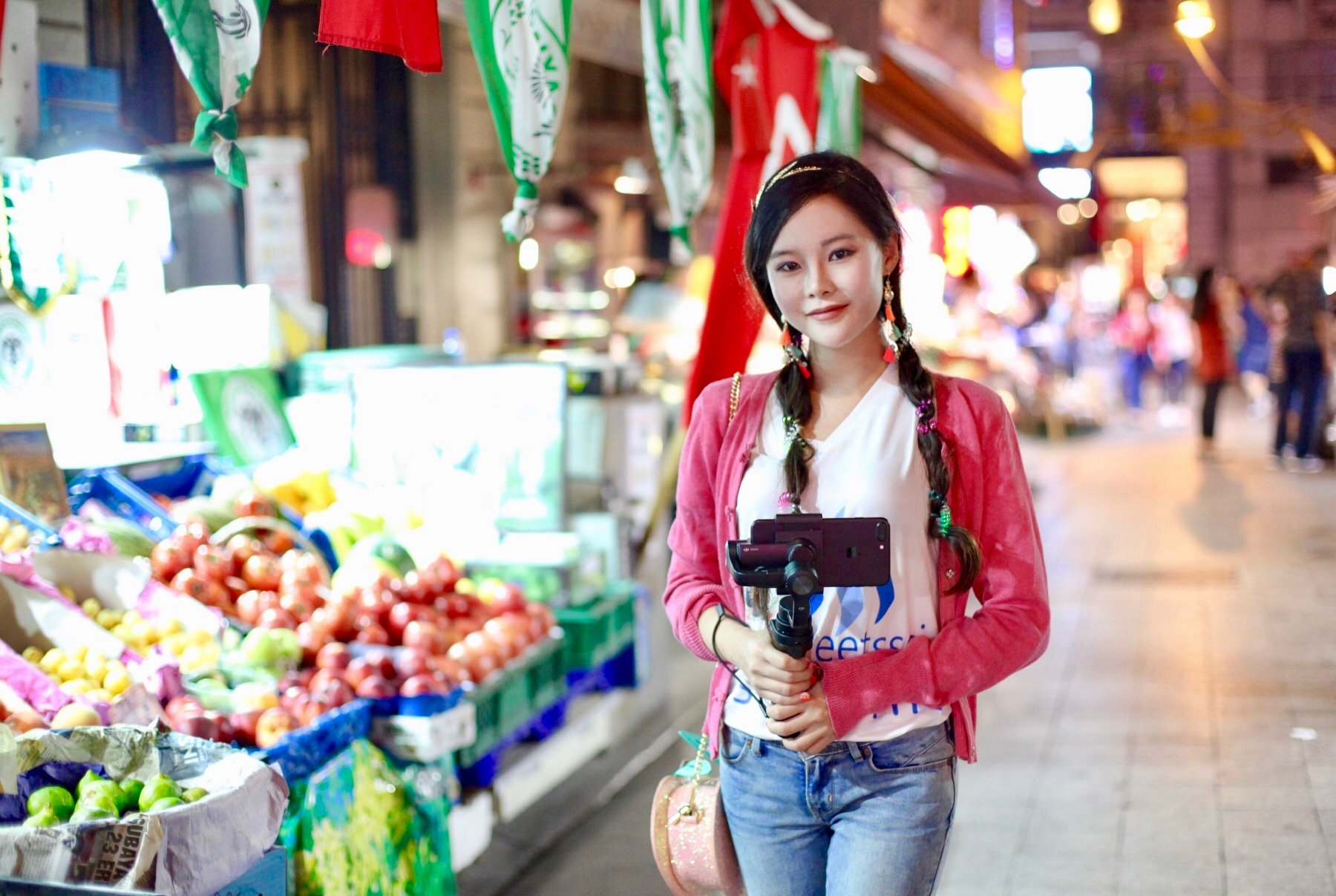
One thing I discovered was that the narrow streets of Istanbul seemed to have surprises at every turn. Whilst larger streets draw most of the attention, there are actually hidden bars, cafes and stalls in almost every little street I walked through.
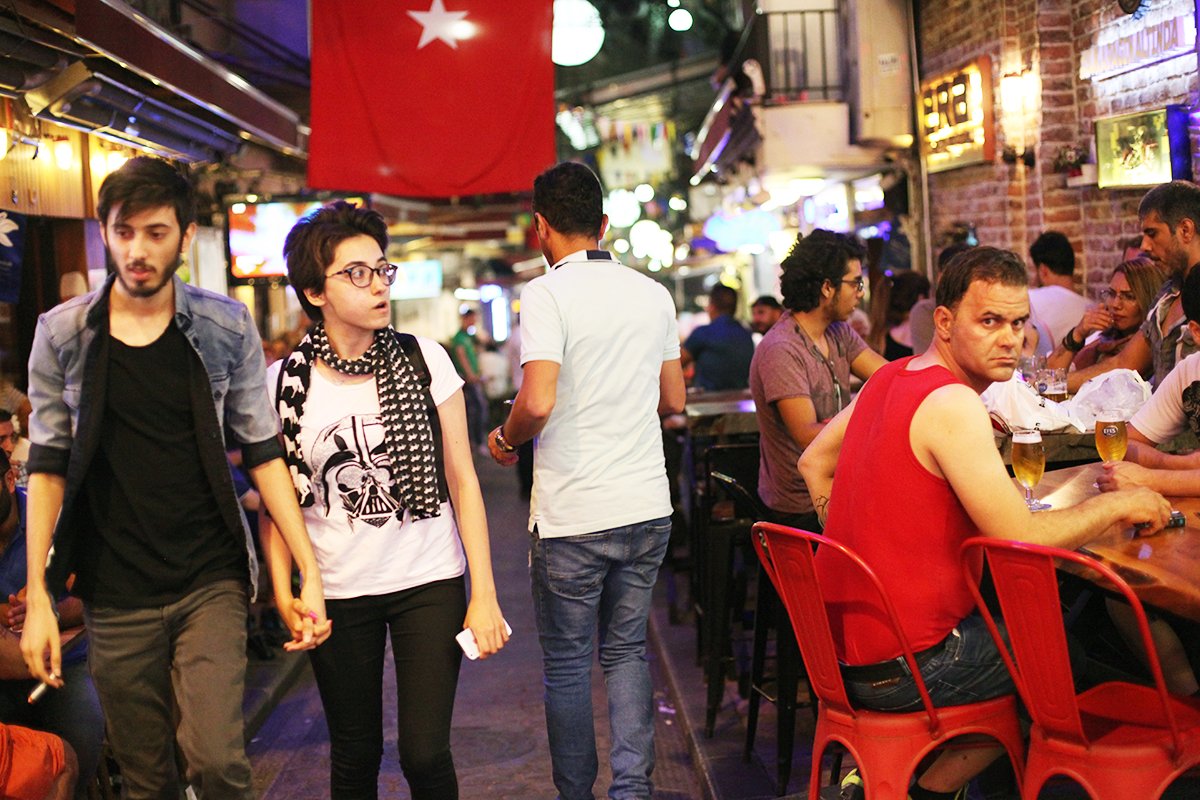
The roads were also exceptionally busy around this time. Many people are only just coming in to the Taksim area for it's buzzing nightlife.

Surprisingly, there are people standing outside of bars drinking. I thought this practice only occurs in places like London.
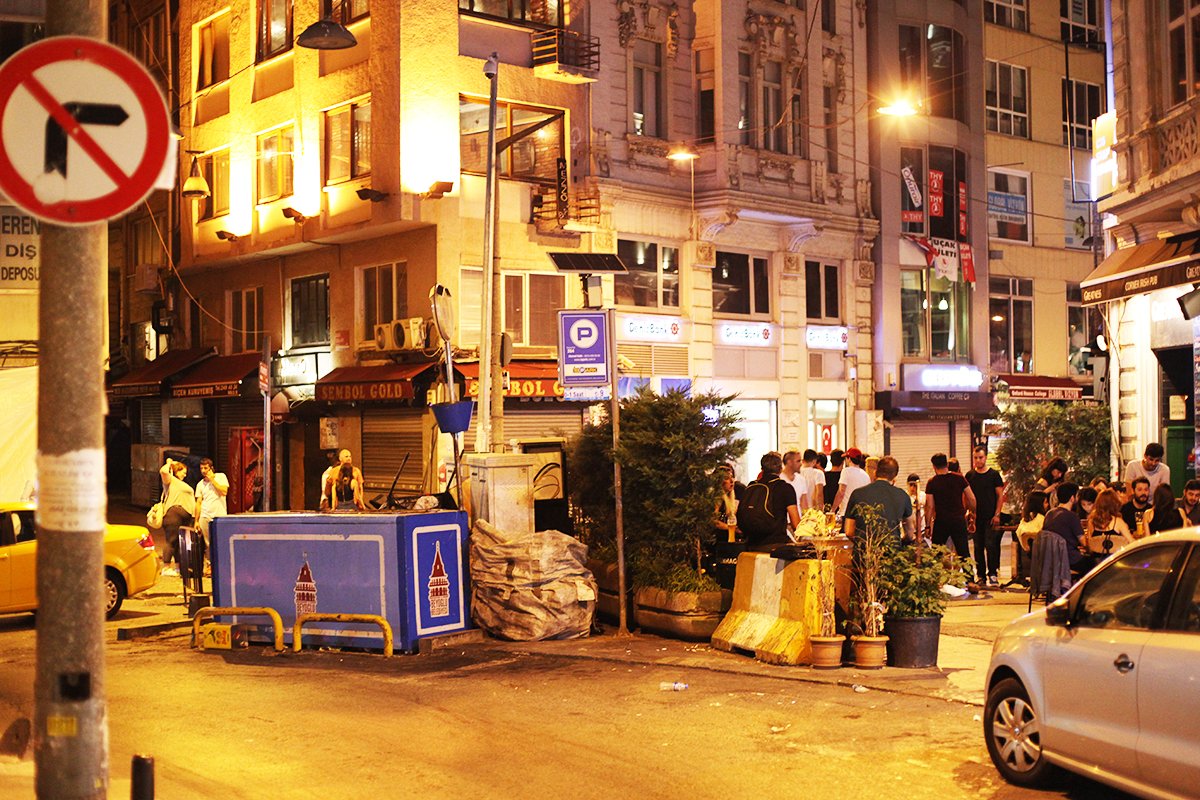
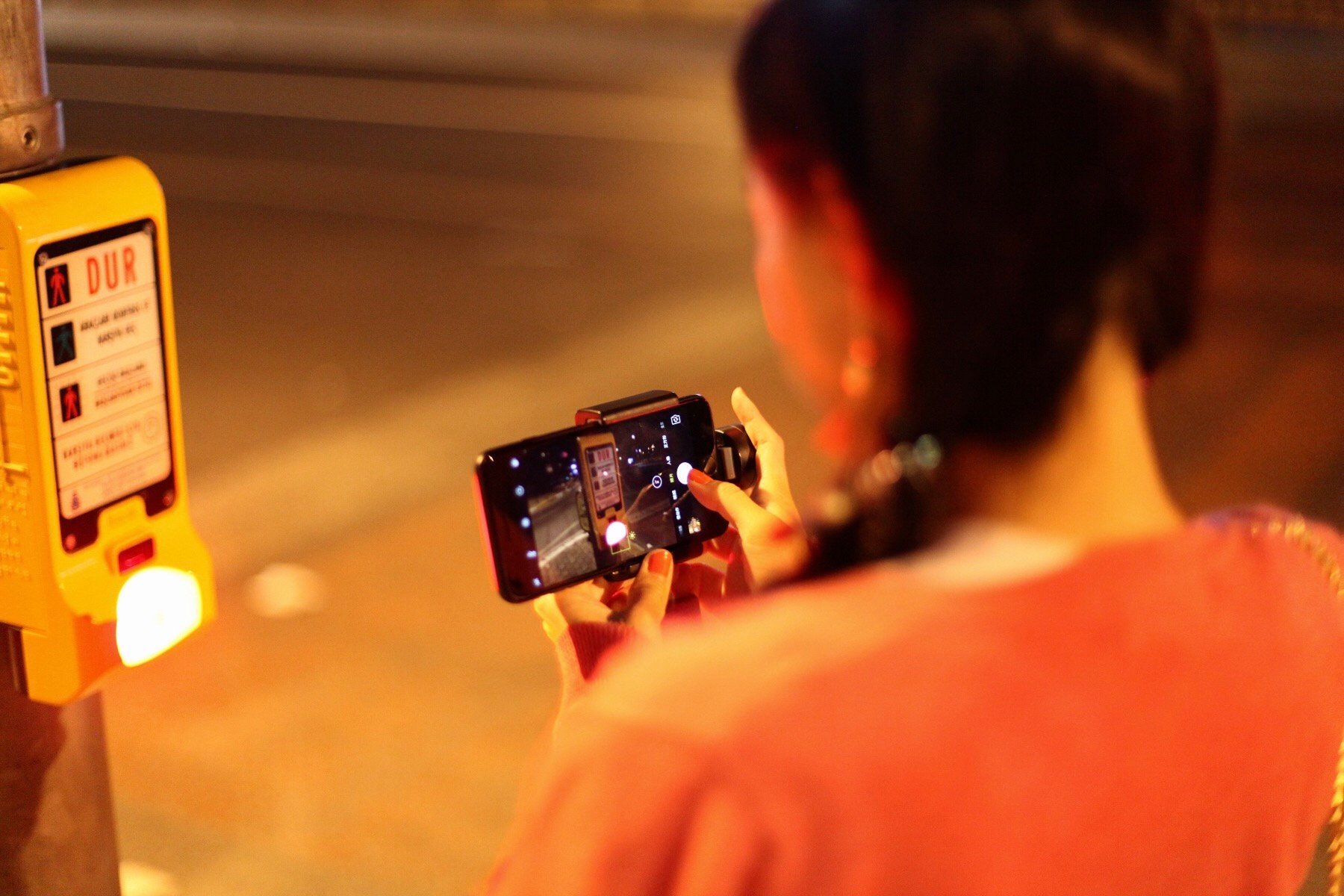
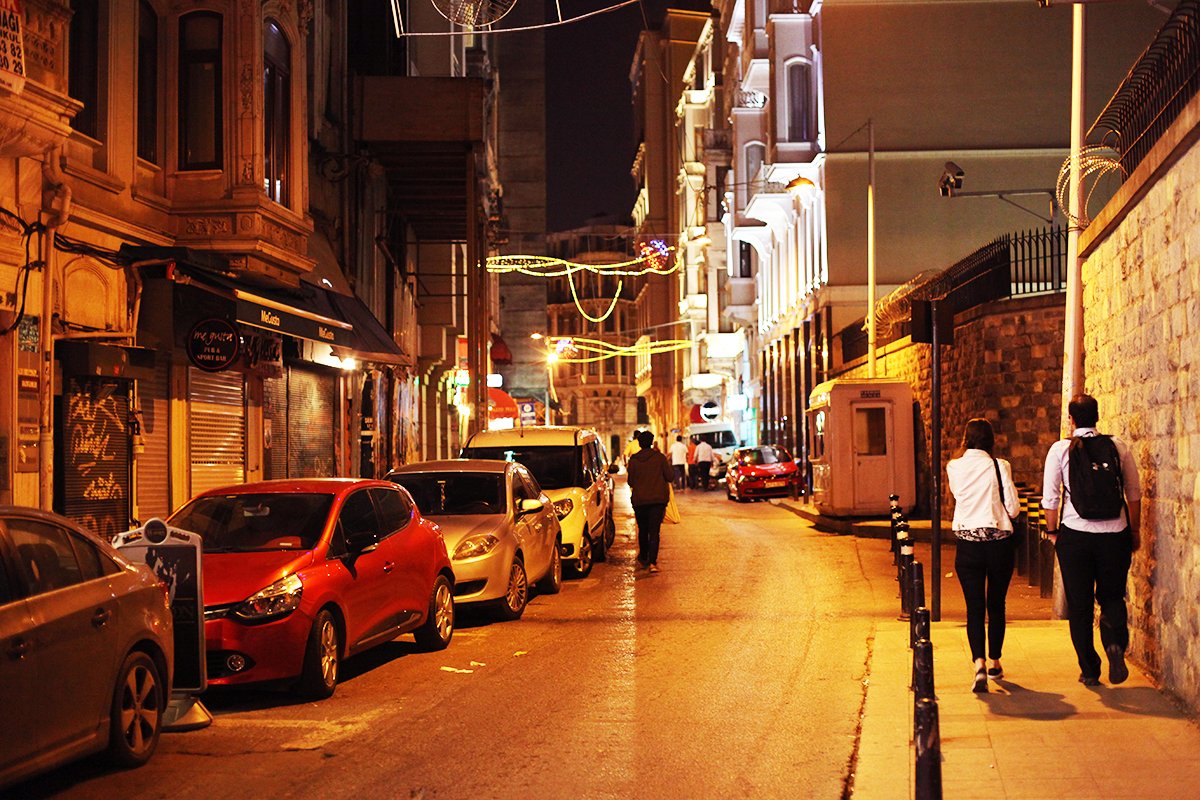
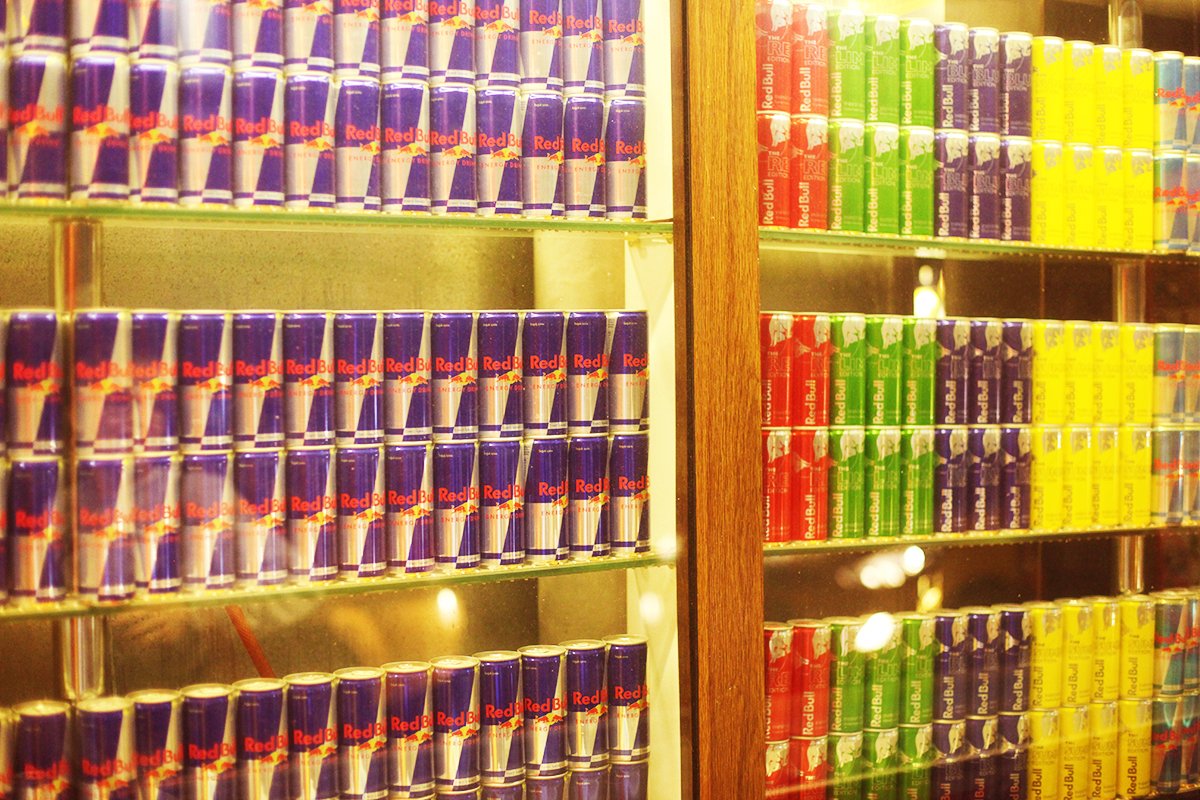
Night time view across the strait to Sultanahmet
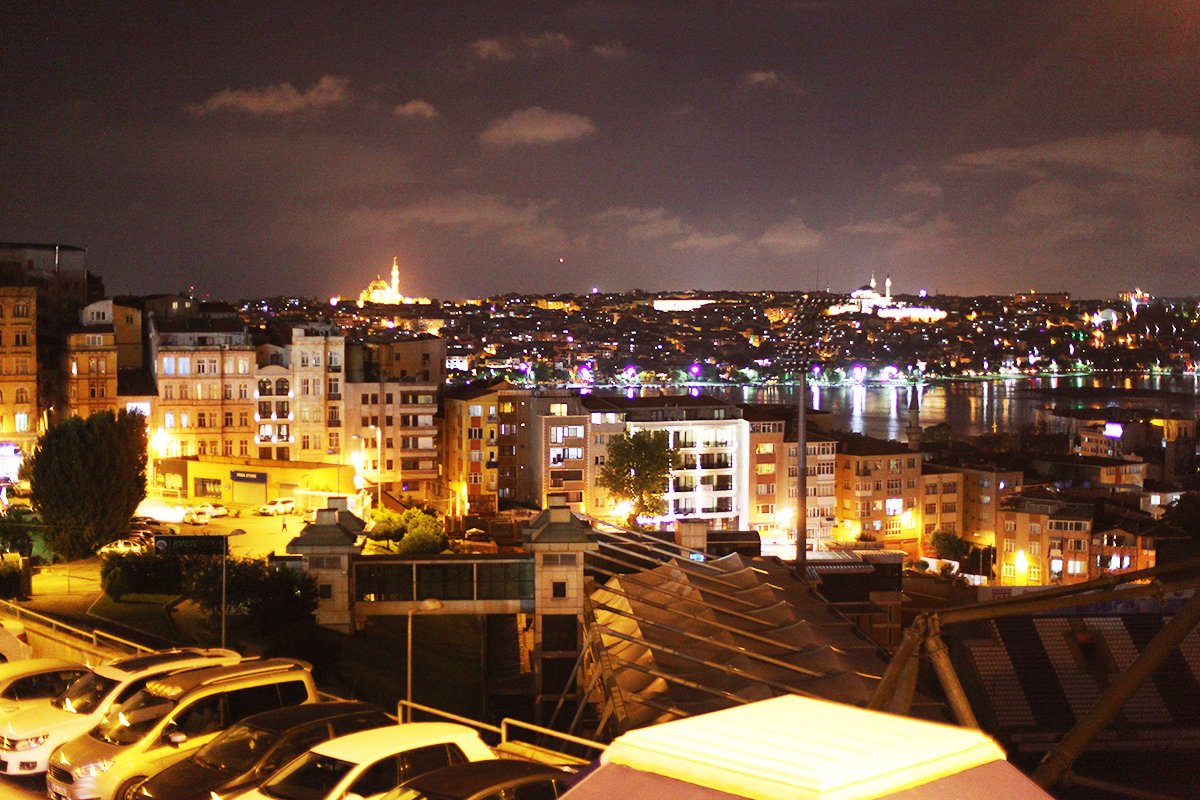
Every few hundred meters or so, you'll come across a Mosque. Most of the people are Islamic, and so the Mosques are an important part of their every day life.
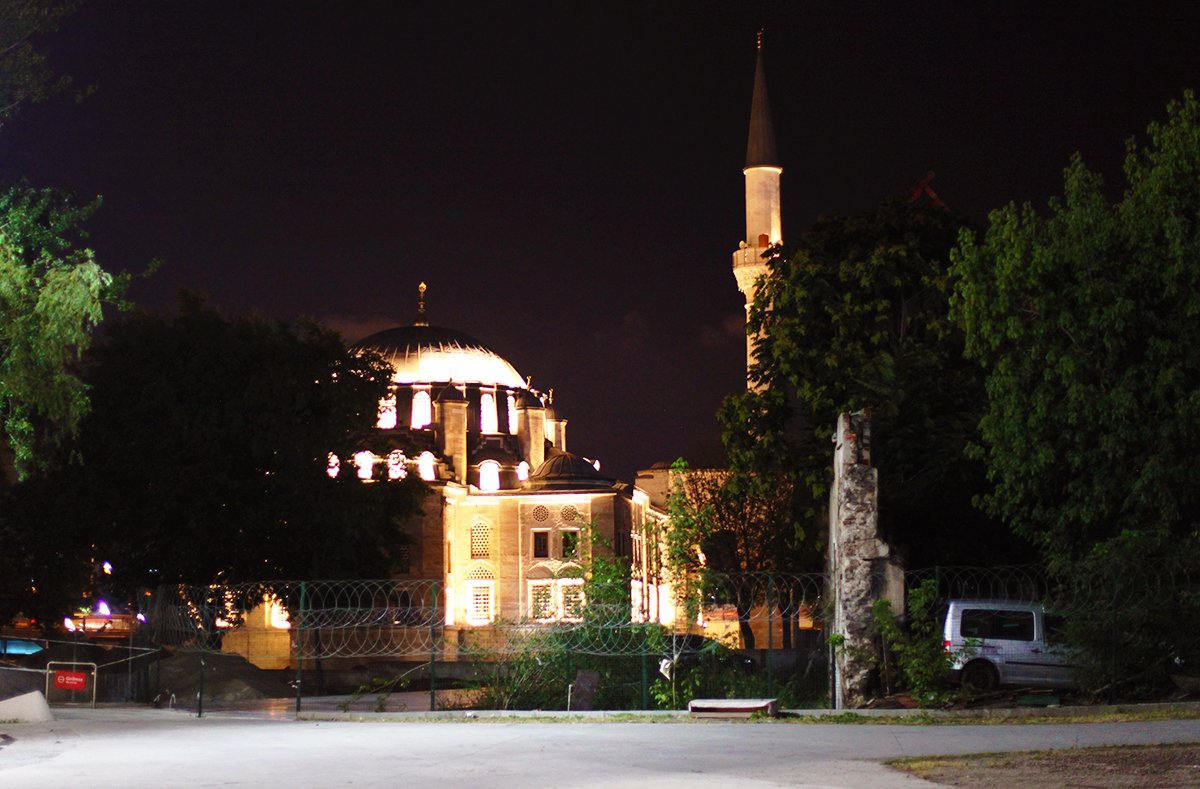
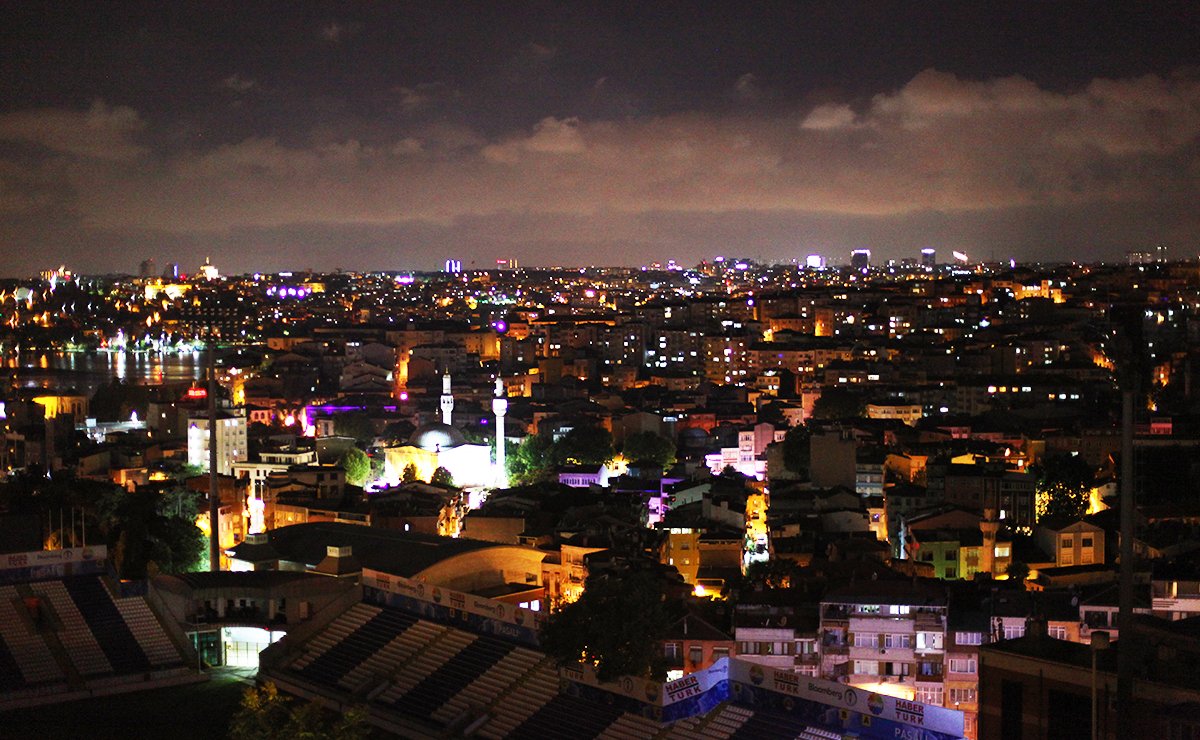
It was interesting seeing these aqueduct ruins preserved underneath the modern bridges.
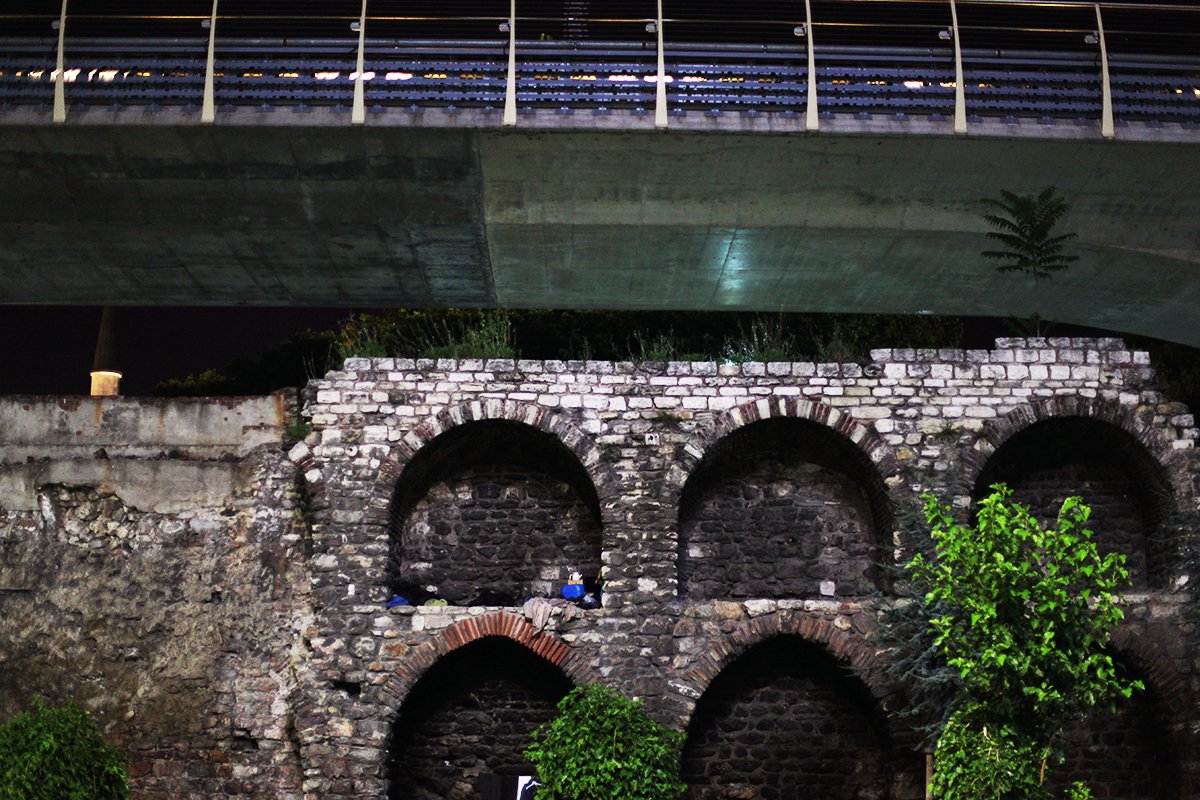
To reach Sultanahmet from the Pera district, cross a bridge is necessary, unless you are happy to walk tens of kilometers around the strait.

Using only the Hagia Sophia and Blue Mosque as guiding landmarks, we found a suspension bridge that looked safe to cross.
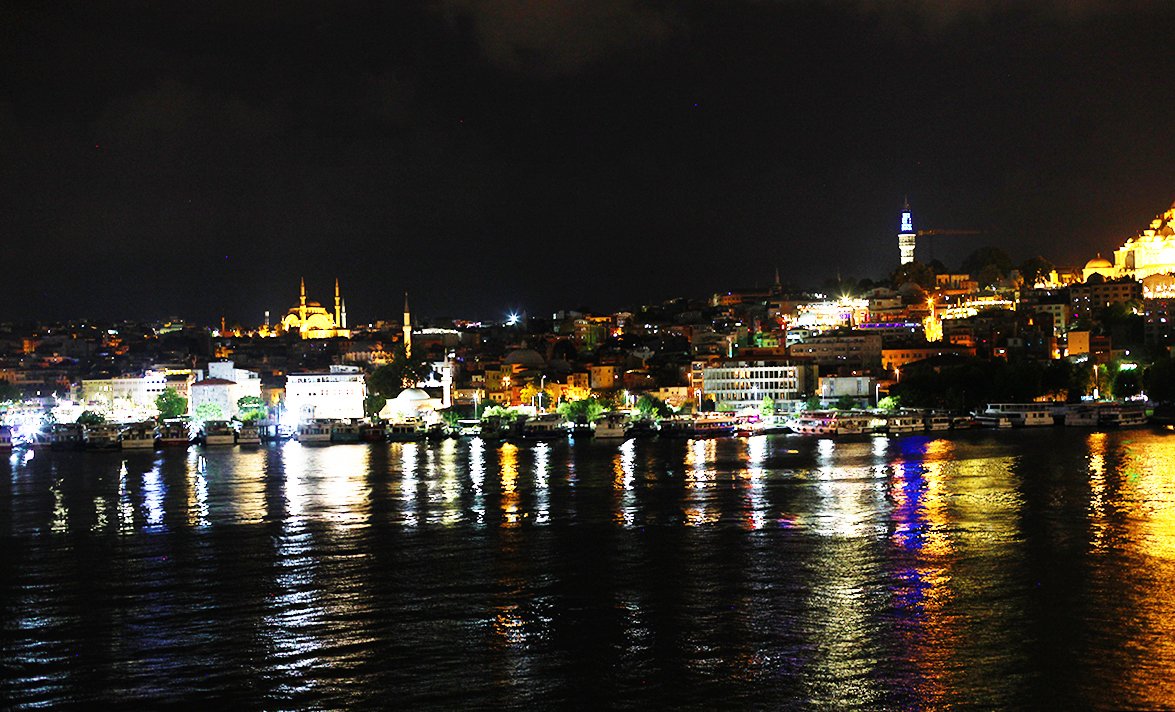
The bridge is actually for the subway station Haliç. Beside the main rail line, there is a pedestrian path across the bridge. No cars can cross over on this one.
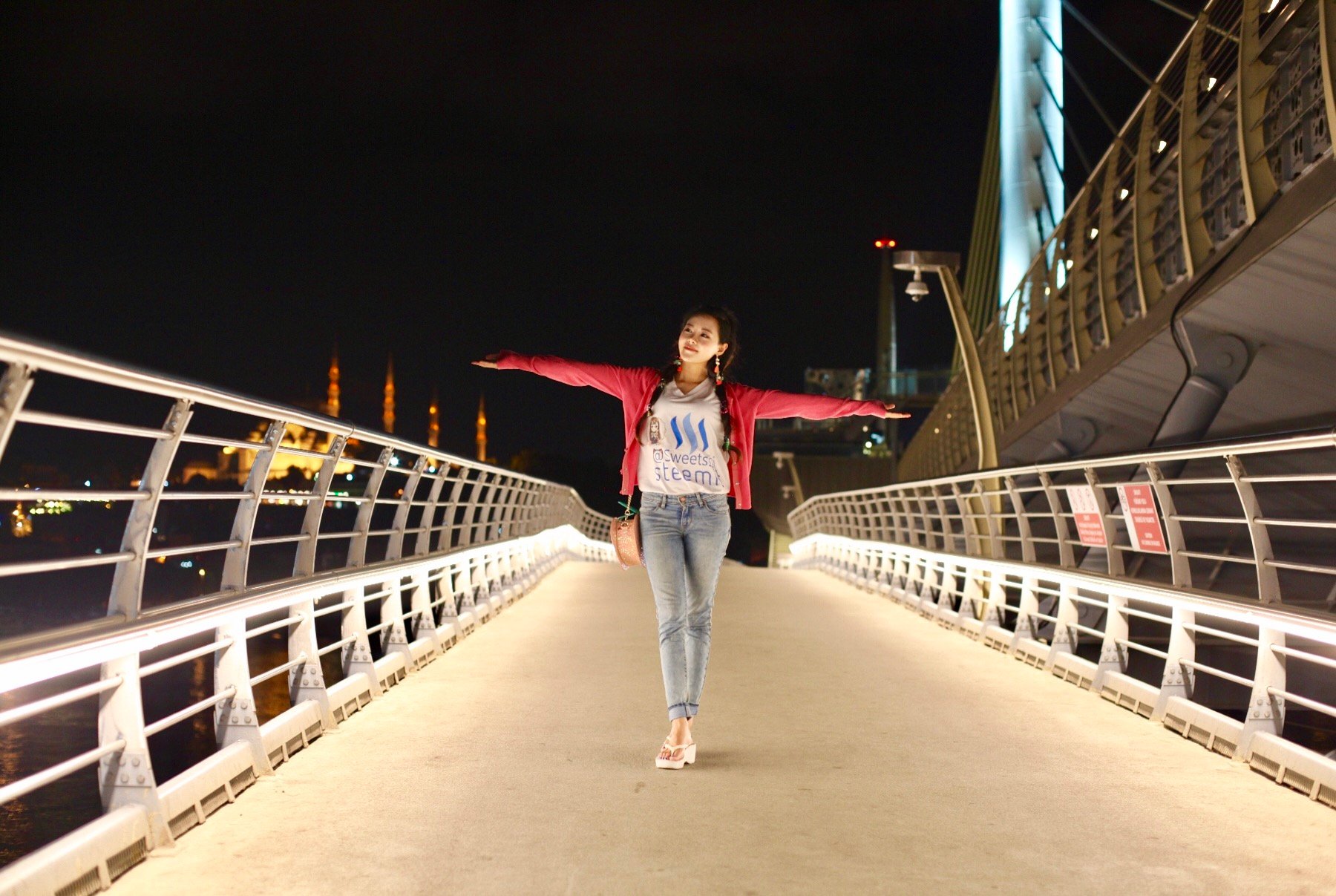
As we get closer to the old city, the Mosques come clearer in view. They are illuminated very brightly and are simply beautiful.
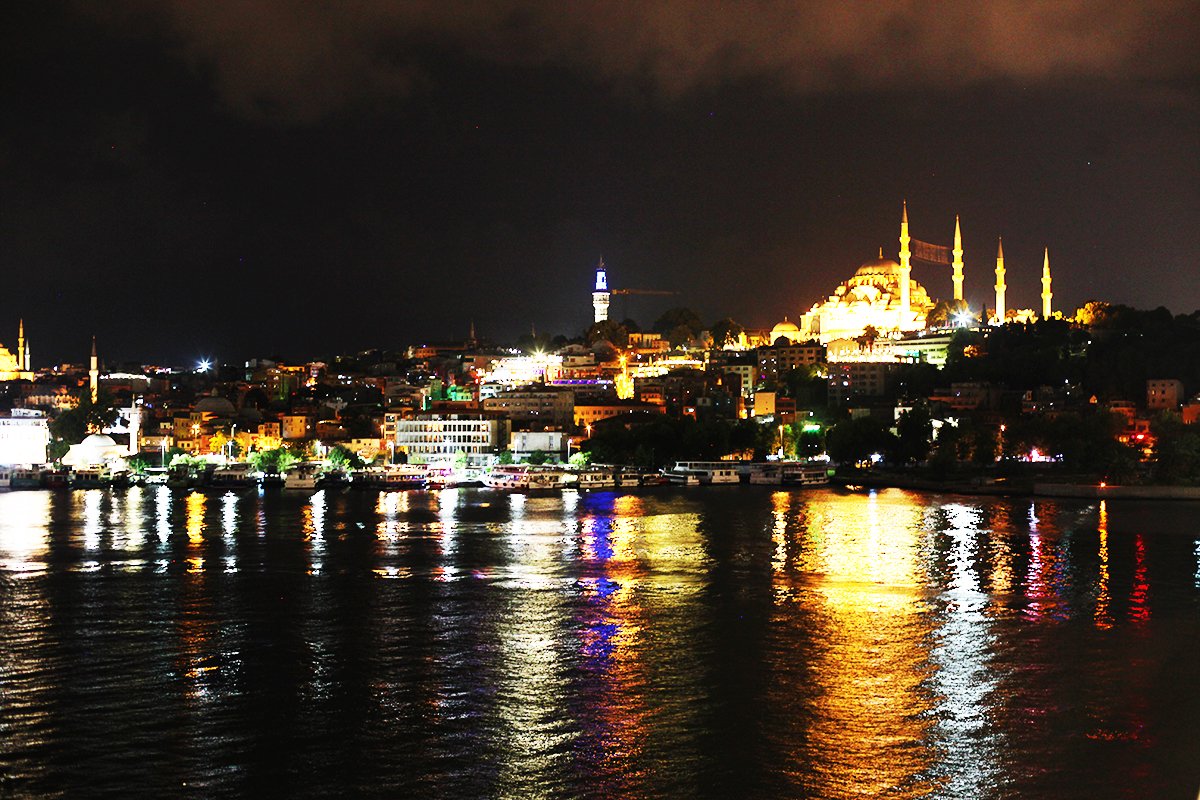
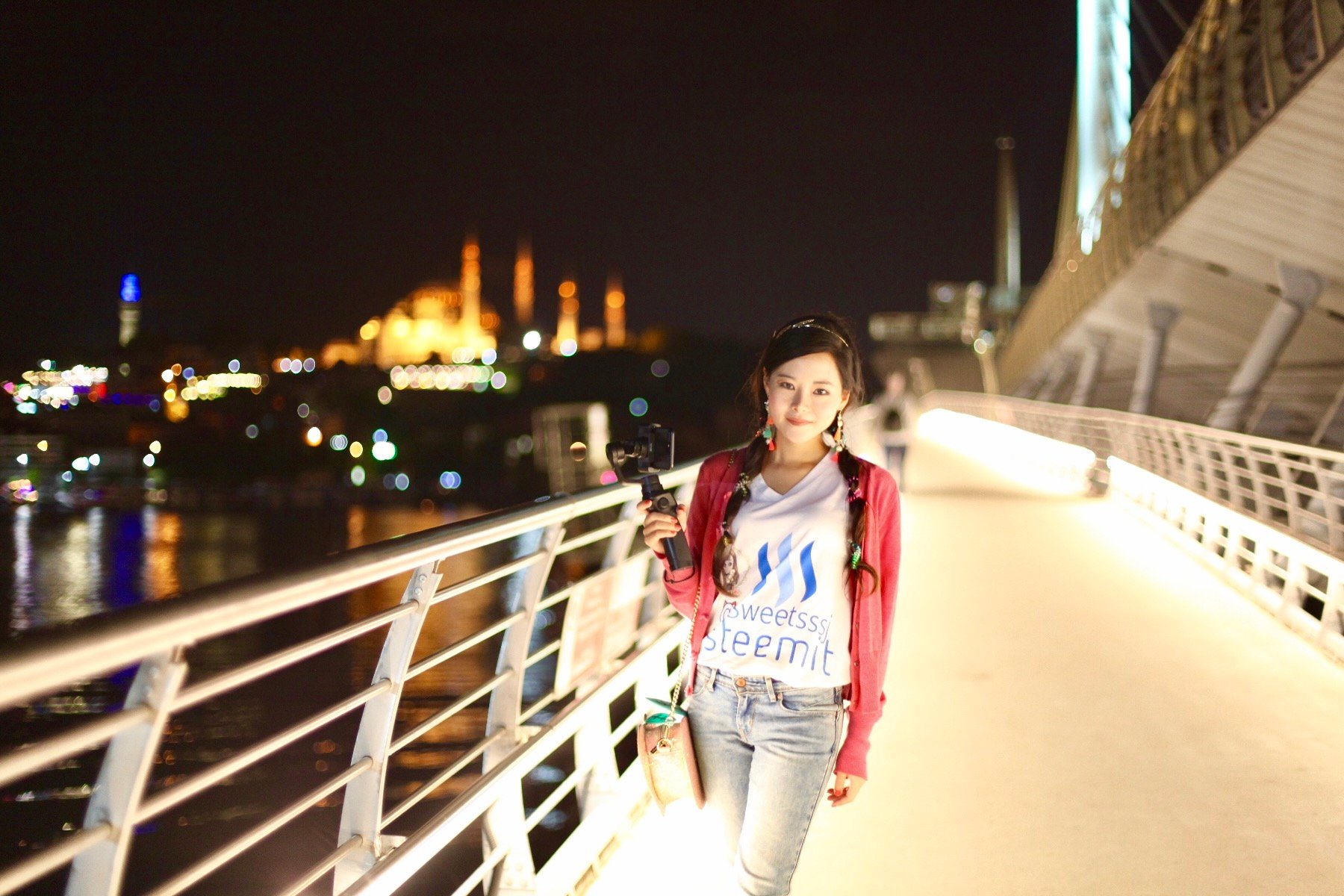
Check out the video walking tour! (Surprise ensemble at the end!)
Thank you for joining me on this walking tour of two of the most popular attractions in Istanbul. The Grand Bazaar has over 500 years of history, and fascinates all who visit Istanbul looking for traces of it's trading hub history. It is without a doubt a huge contributor to Istanbul's economy, employing over 26,000 people and constantly being visited by tourists. It is however considered nowadays somewhat a tourist trap. Prices are expensive, the shop keepers are all hustlers, and the products are bland without variety. Definitely at a low from it's hey day from centuries ago.
On the other hand, İstiklal Avenue remains one of the most popular streets in the whole city. It is brimming with nightlife, and constantly full of energy. It is definitely the district for young people who want some excitement. Even if clubs, bars are not your scene. You can always visit the dessert cafes, or restaurants and taste some of those delicious Turkish delights!
Don't forget to vote for this post if you liked it, follow me for more, and leave a comment to let me know what you think!

一座城市最真实,最接地气的样貌,就是这个城市的集市。那大街小巷里川流不息的人群,那一声声对生活充满热情的叫卖,还有人头攒动的店铺传来的阵阵欢笑声,是一座城市活力的源泉。地中海地区最著名的集市莫过于伊斯坦布尔的大巴扎集市,作为一个爱逛街的人,当然不能错过这个体验世界上最古老集市的机会。Bazaar是室内集市的意思,门口的石头大门好气派,很有点北京四合院的意思,一连设立好几重大门非常人性化,站在门外就已经能感受到里面的热闹气氛了,现在就请大家和我一起走进集市寻宝吧。
大巴扎集市于1461年诞生,有30公顷大的面积,其中分布着22道石头大门,2个拱形砖石仓库,里面的街道更是多到可以迷路。集市里有大约60条室内街道和5000多间商铺,每天吸引的顾客多达40万。集市里的商品更是品种繁多,应有尽有,从金饰店,陶瓷店,服装店再到钟表店,装饰品店,香料店和食品店,你所期待看到的土耳其传统文化,民俗饰物一应俱全,简直像一座小城市。
多少个世纪以来,这里一直是伊斯坦布尔城市的中心,集市里的生意也越做越大,美丽精致的商品吸引来全世界的游客买家光顾。据说土耳其的黄金交易有百分之八十是在大巴扎里进行的,但对于现在的游客来讲,这个交易场所倒是成了自身非常有看头的观光景点。能够亲眼所见这些,埋藏了家族世世代代心血的古老店铺,更能亲身体验充满土耳其韵味,与众不同的销售态度和创业精神,对于我来说,是一个千载难逢的机会深入当地的生活状态。
当店铺老板看见你缓缓走来,会用极其热情的声音欢迎你的到来,并借机向你推销他们自家的商品,在这如迷宫般错中复杂的街头巷尾,你总能寻觅出一份只属于土耳其的地道文化特色,这让我欣喜极了。再看看琳琅满目的商品,那价值连城的金银器物发出耀眼的光芒,眼前亮晶晶一片,真是一种美的享受,身边的游客无不为之惊叹。精美的土耳其传统花纹瓷器,还有非常吸引眼球的手工彩绘玻璃灯,传说中的土耳其水烟袋,食品店里色彩缤纷的糕点和香料,看的我眼花缭乱,更迫切的想抓紧时间逛遍所有的店铺。
离开了大巴扎,我们再去伊斯坦布尔最有名的独立大街逛一逛。在独立大街的一头,是塔克西姆广场,这里被当地人看作是伊斯坦布尔的心脏,广场上纪念土耳其共和国成立的纪念碑显得格外威武。顺着热闹的声音走,就来到了独立大街。这条街是整座城市最繁华的街道之一,周末一天就会有近300万人前来参观逛街。这条装饰优雅的步行街被独特的古希腊建筑包围,大约3公里长,沿街密密麻麻两排店铺,咖啡店,餐厅,商店,电影院,图书馆,你所能想象的这里都有。甚至还有你想象不到的,例如酒吧和夜店。
虽然伊斯坦布尔是一个严肃而神秘的宗教国家,可当夜色拉开帷幕时,这座城市却显露出别样的浪漫风情,据说伊斯坦布尔还是全世界夜生活最丰富的城市之一呢。大街上越夜越热闹,平日里的商业街瞬间变成了人潮汹涌的夜市。街上传来欢快有节奏的音乐,人们情绪高涨,有的在街上手舞足蹈,有的吹起了幸福的泡泡。路过一家古老的糕点餐馆,我的眼睛就陷进去拔不出了,甜布丁和果仁蜜饼都好吃极了,仿佛咬一口蜜汁就甜进了心里。在伊斯坦布尔醉人的夜色下,我们今天的旅程就要告于段落了,今夜,不眠。

